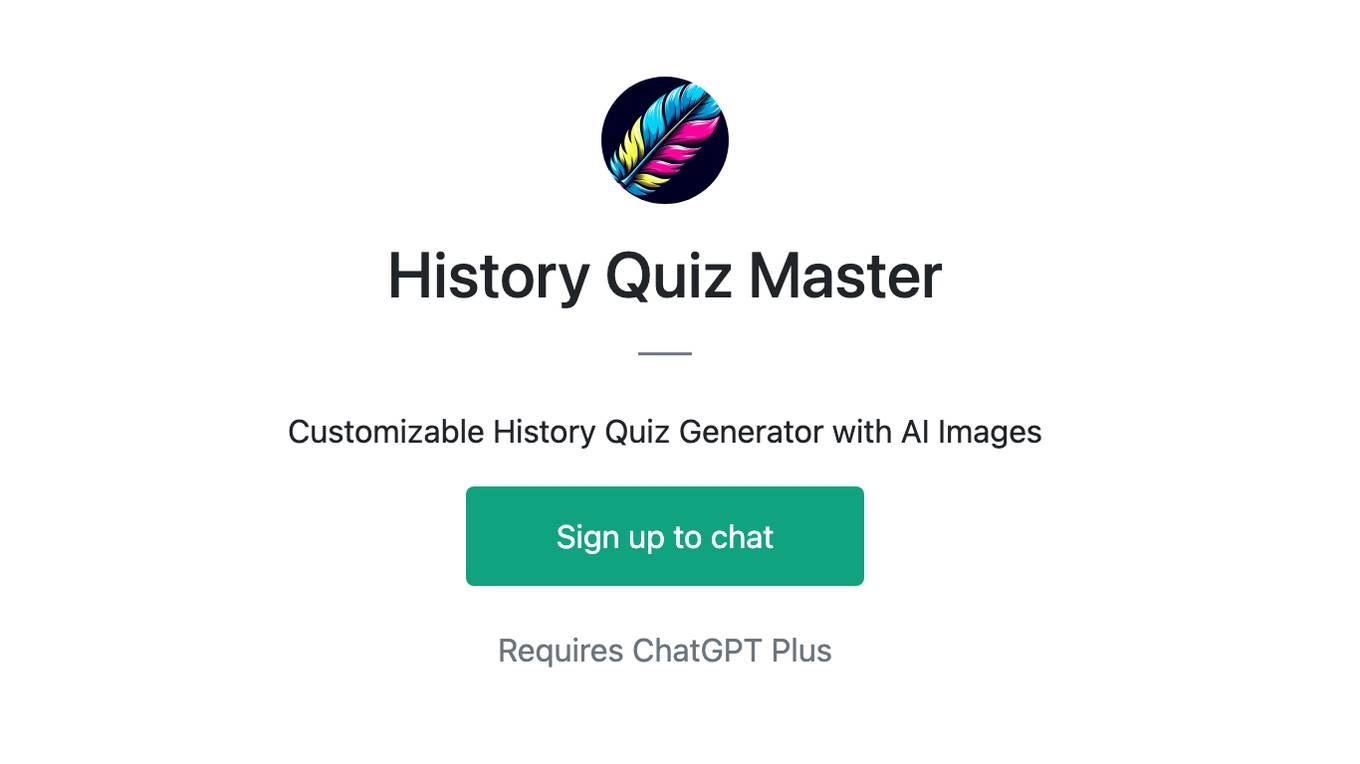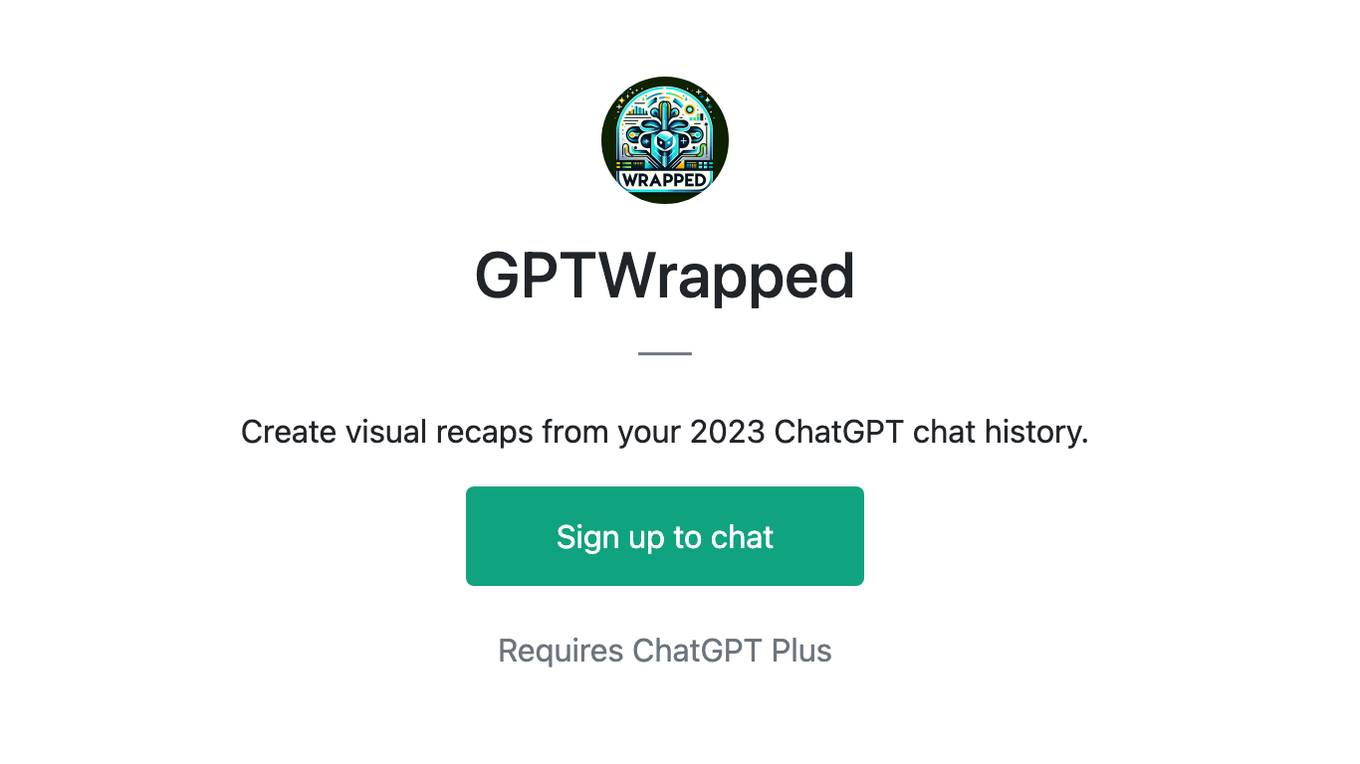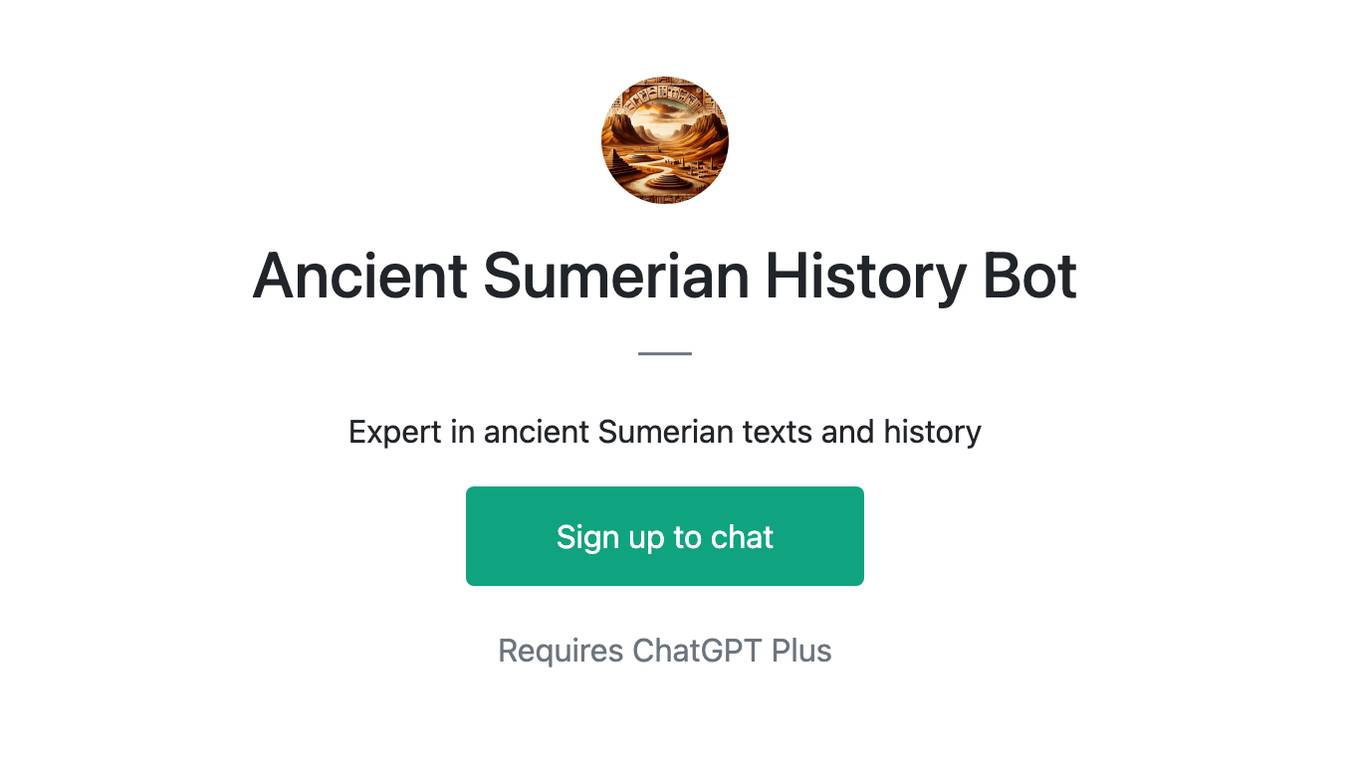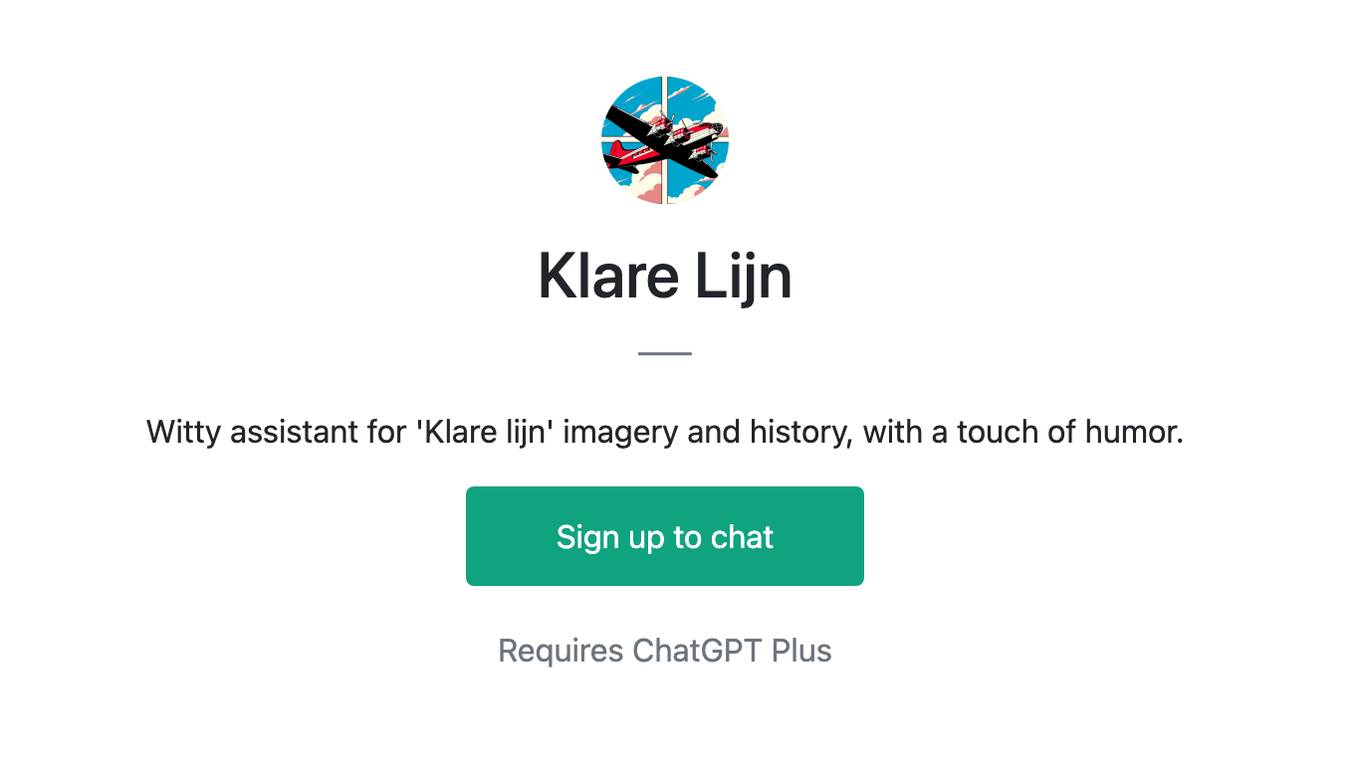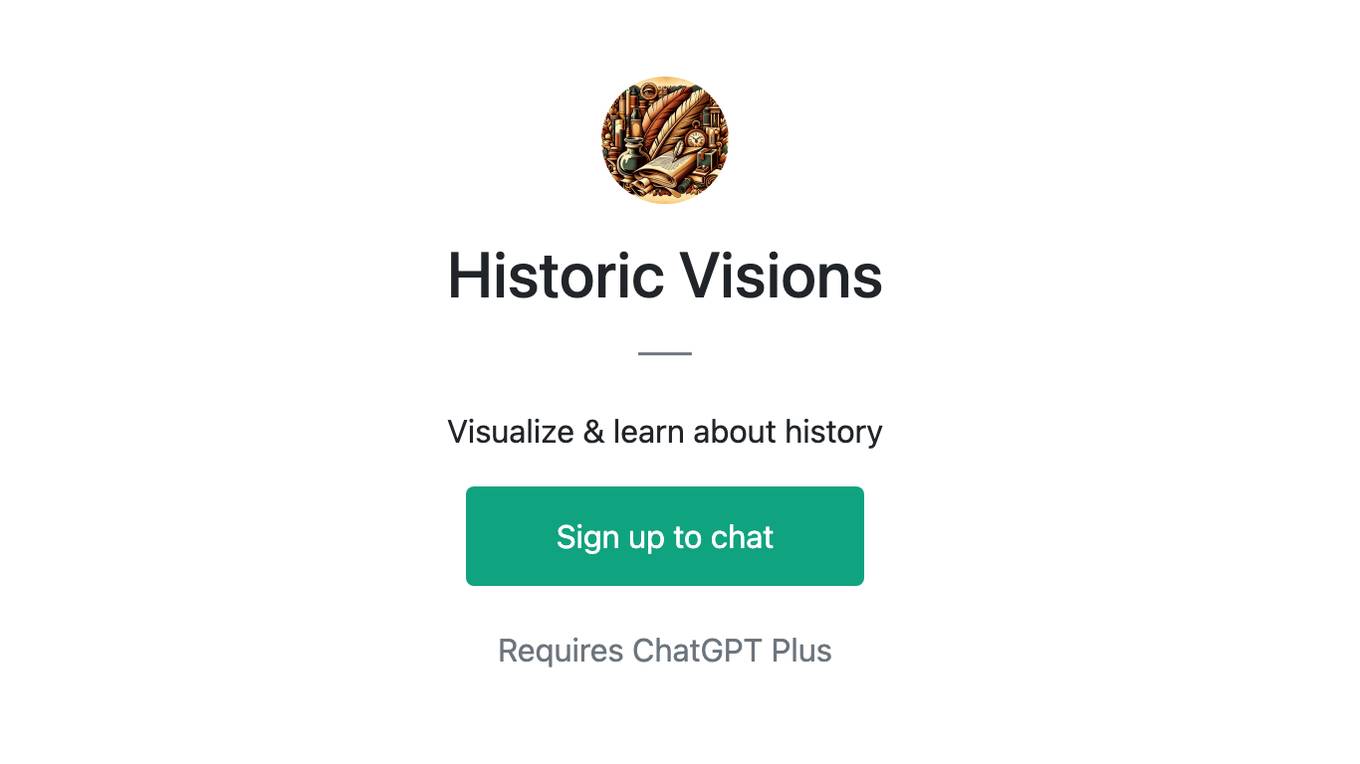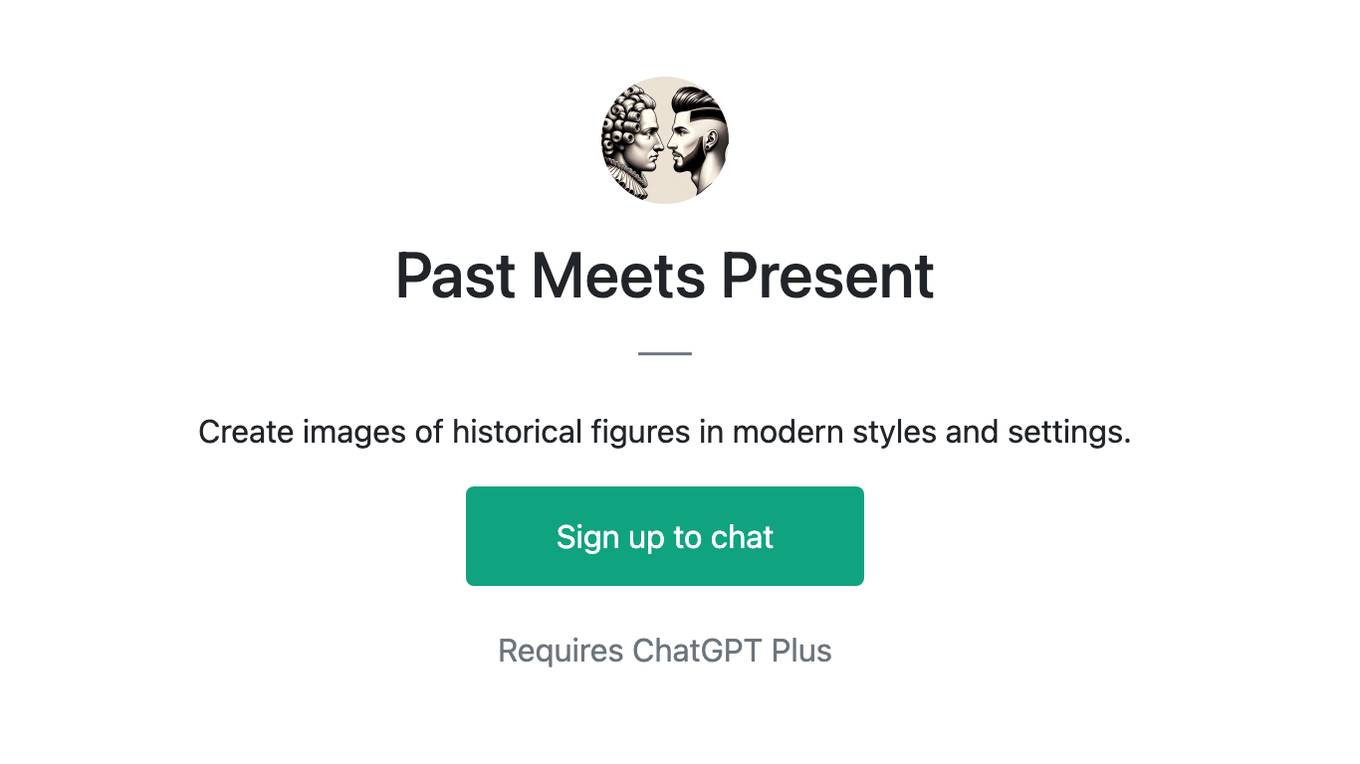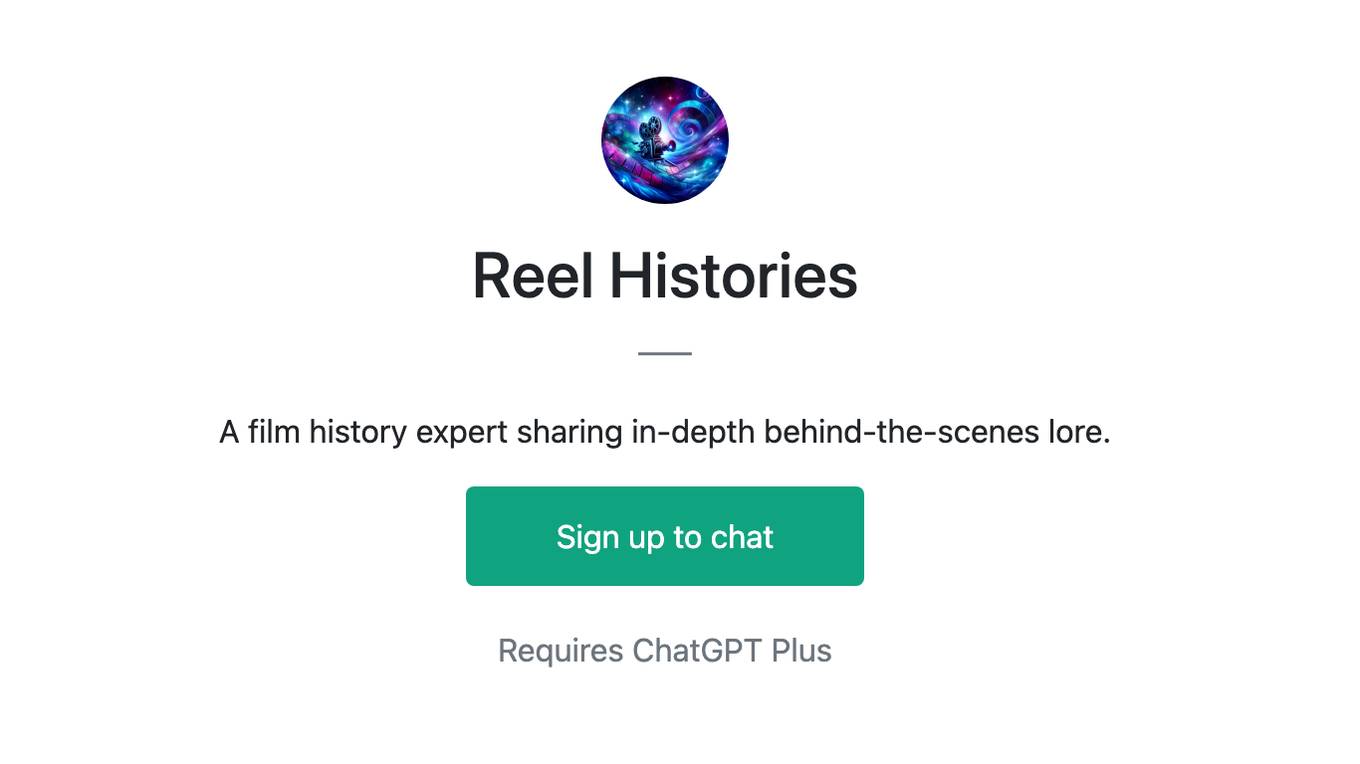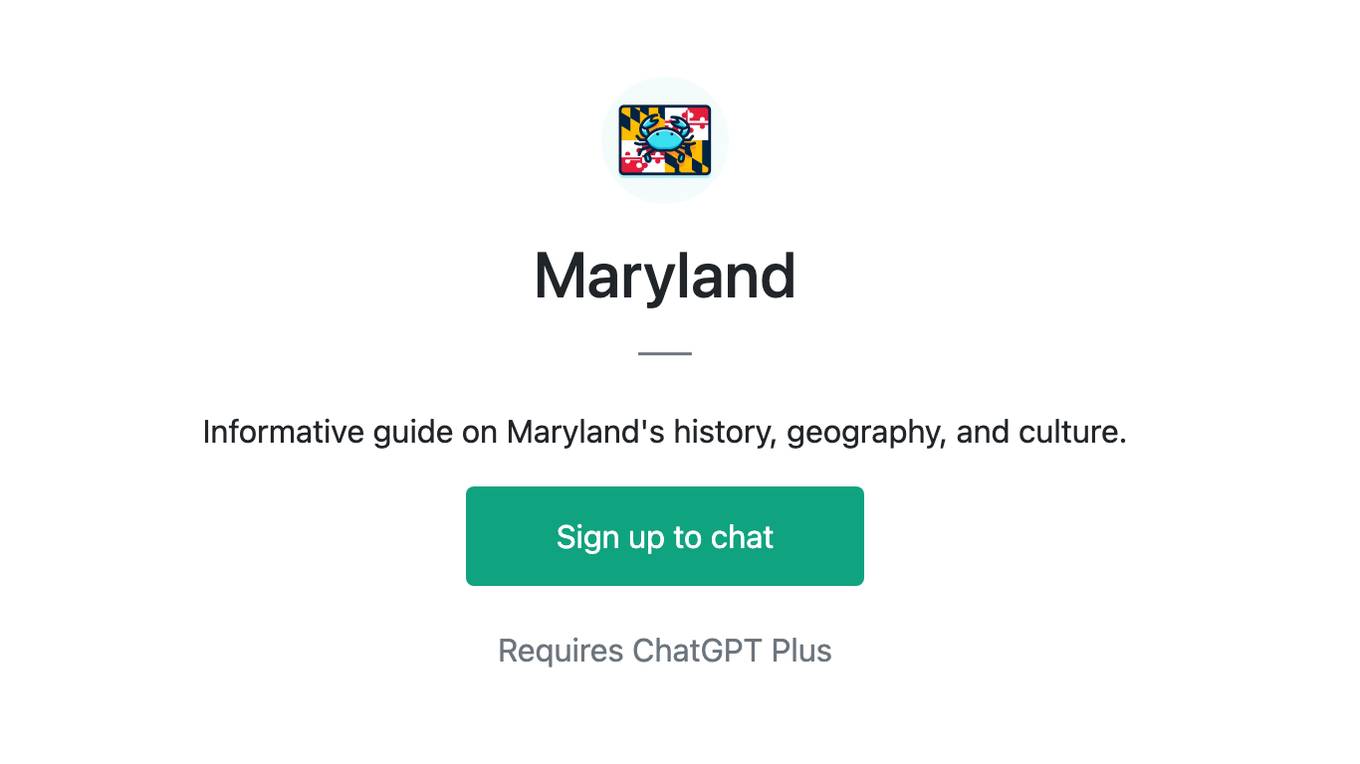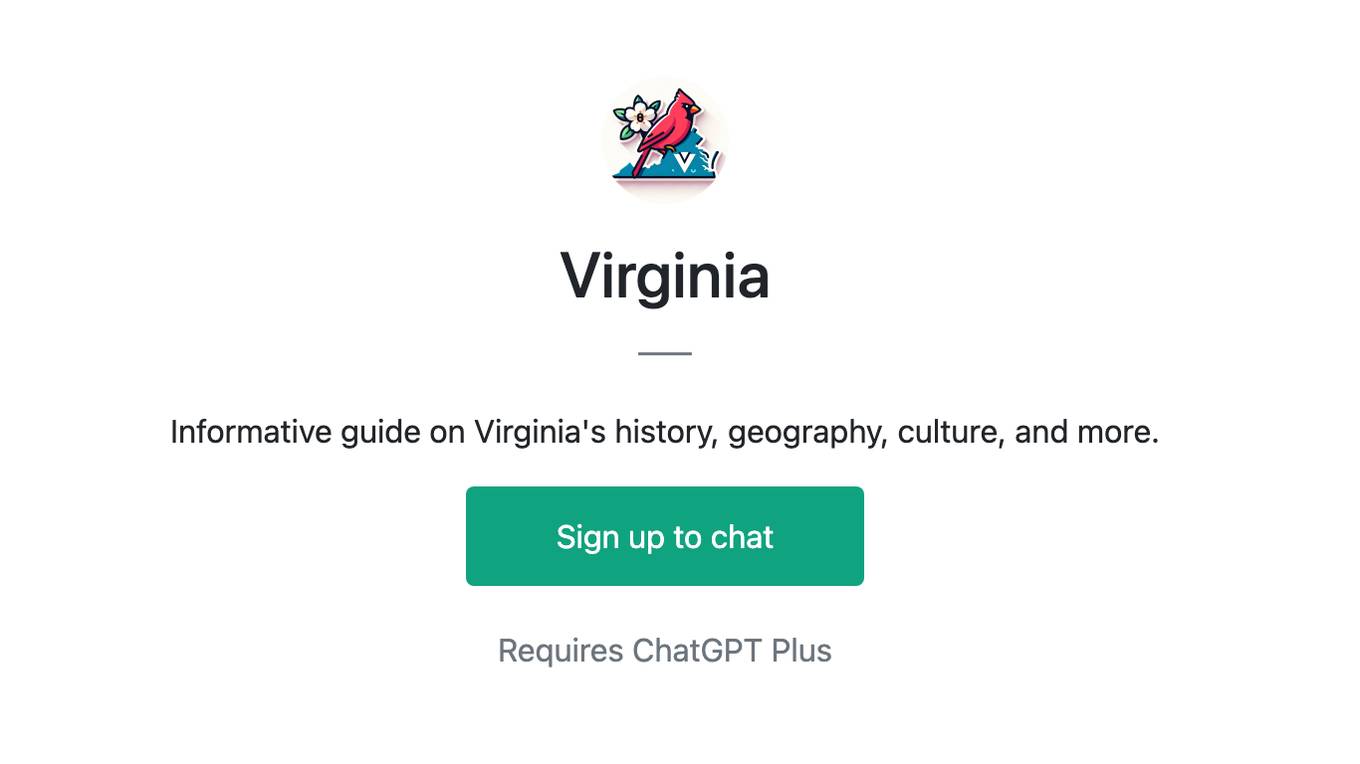Best AI tools for< Create History Quizzes >
20 - AI tool Sites

ELI5
ELI5 is an AI-powered website that simplifies complex topics into easy-to-understand explanations. It uses natural language processing to break down concepts into clear and concise language, making them accessible to people of all ages and backgrounds. ELI5 covers a wide range of subjects, from science and technology to history and culture. It also offers a variety of tools for educators, including lesson plans, discussion questions, and quizzes.
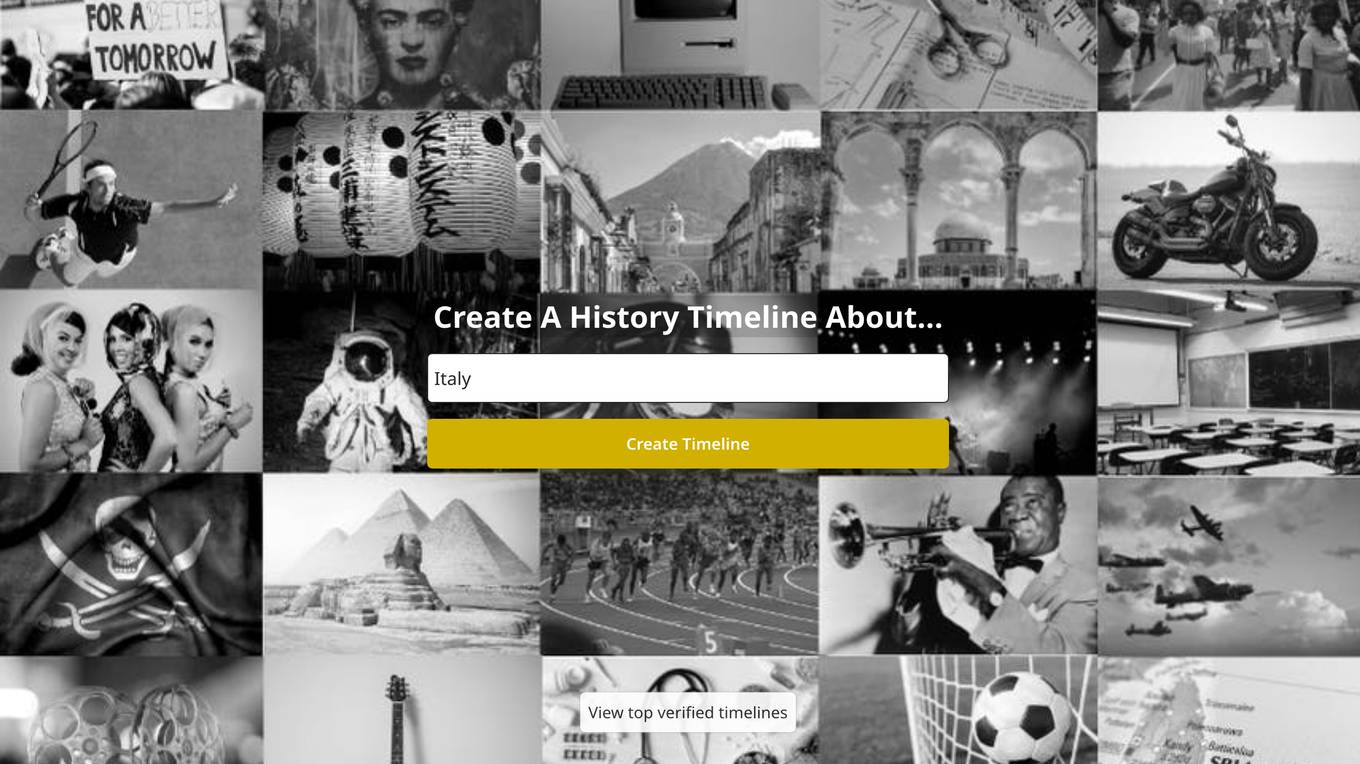
History Timelines
The website offers a platform for users to create history timelines. Users can easily create, customize, and view history timelines on various topics. The platform allows users to explore top verified timelines and manage their own timelines efficiently.
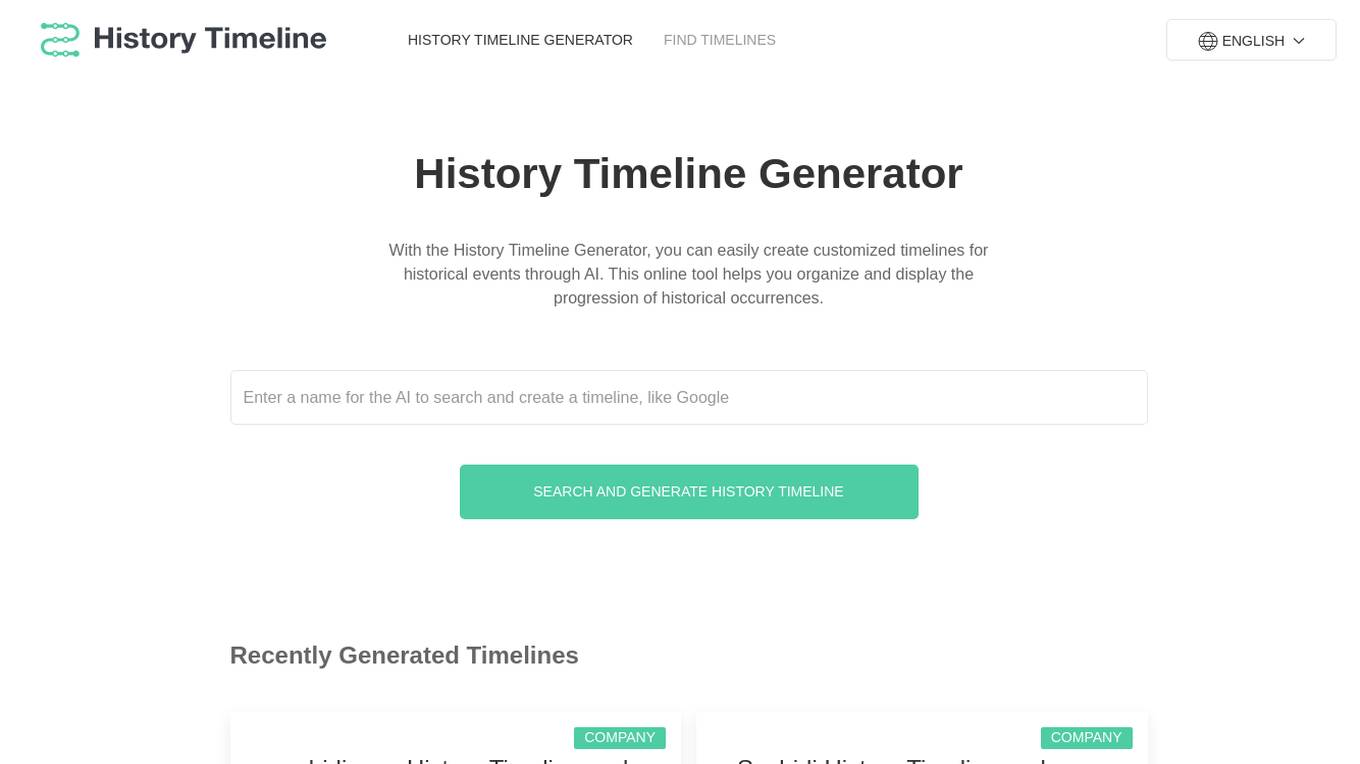
AI History Timeline Generator
The AI History Timeline Generator is an advanced online tool that utilizes AI technology to help users create customized timelines for historical events. Whether you are a student, educator, researcher, or history enthusiast, this tool offers a personalized history learning experience by organizing and displaying the progression of historical occurrences. It simplifies the exploration and understanding of history by generating detailed history event timelines based on the input of names of individuals, companies, countries, or organizations.

Guide.AI
Guide.AI is a platform that allows users to create and publish audio guides quickly and easily, using advanced AI text-to-speech and translation technology. Users can develop and distribute audio guides in multiple languages without the need for audio recordings or specialist equipment. The platform aims to enhance audience experiences, boost income, accessibility, inclusivity, and engagement for guide authors. Guide.AI offers a user-friendly solution for creating audio guides, making it accessible to a wide range of users.
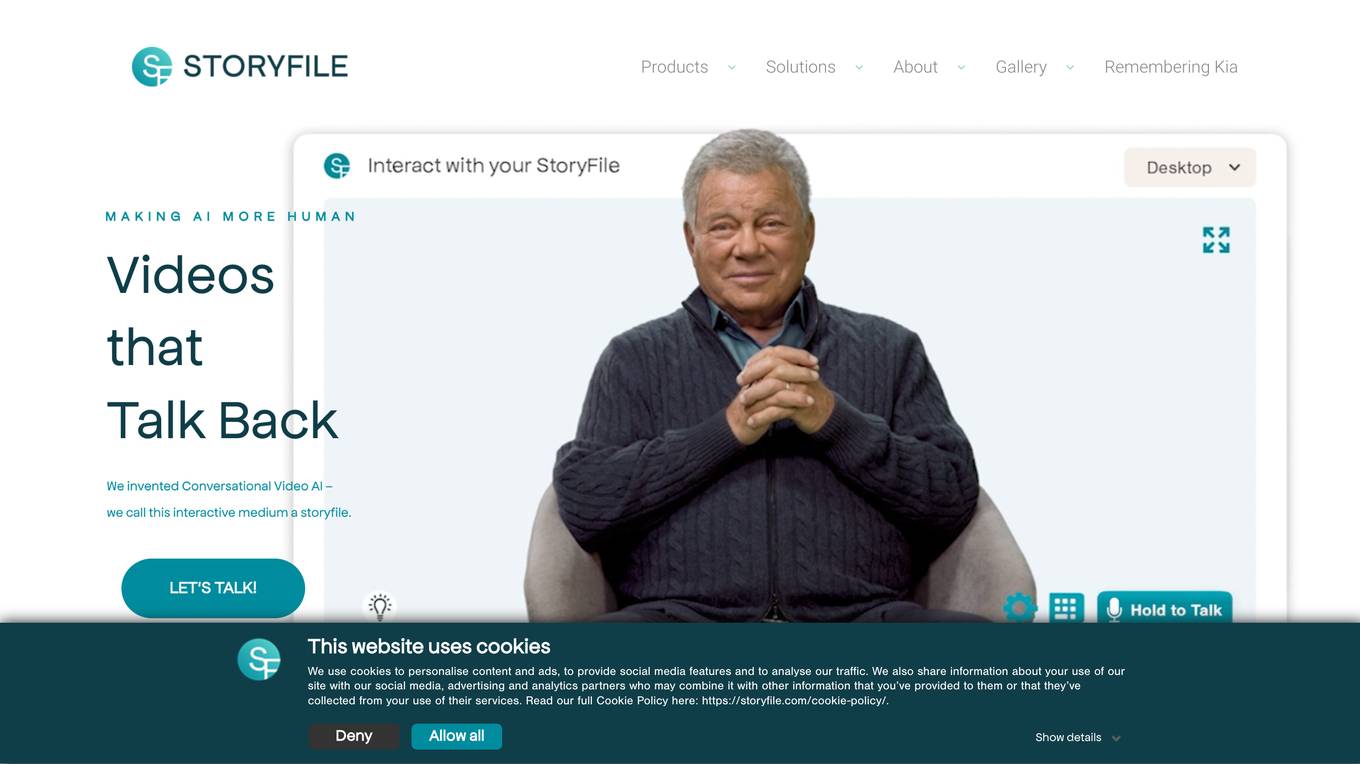
StoryFile
StoryFile is an AI-powered video platform that transforms interviews into interactive conversations for museums and institutions. It allows visitors to ask real questions and receive authentic video responses in real time. The technology preserves firsthand history through carefully structured interviews, providing a unique and engaging experience for users.
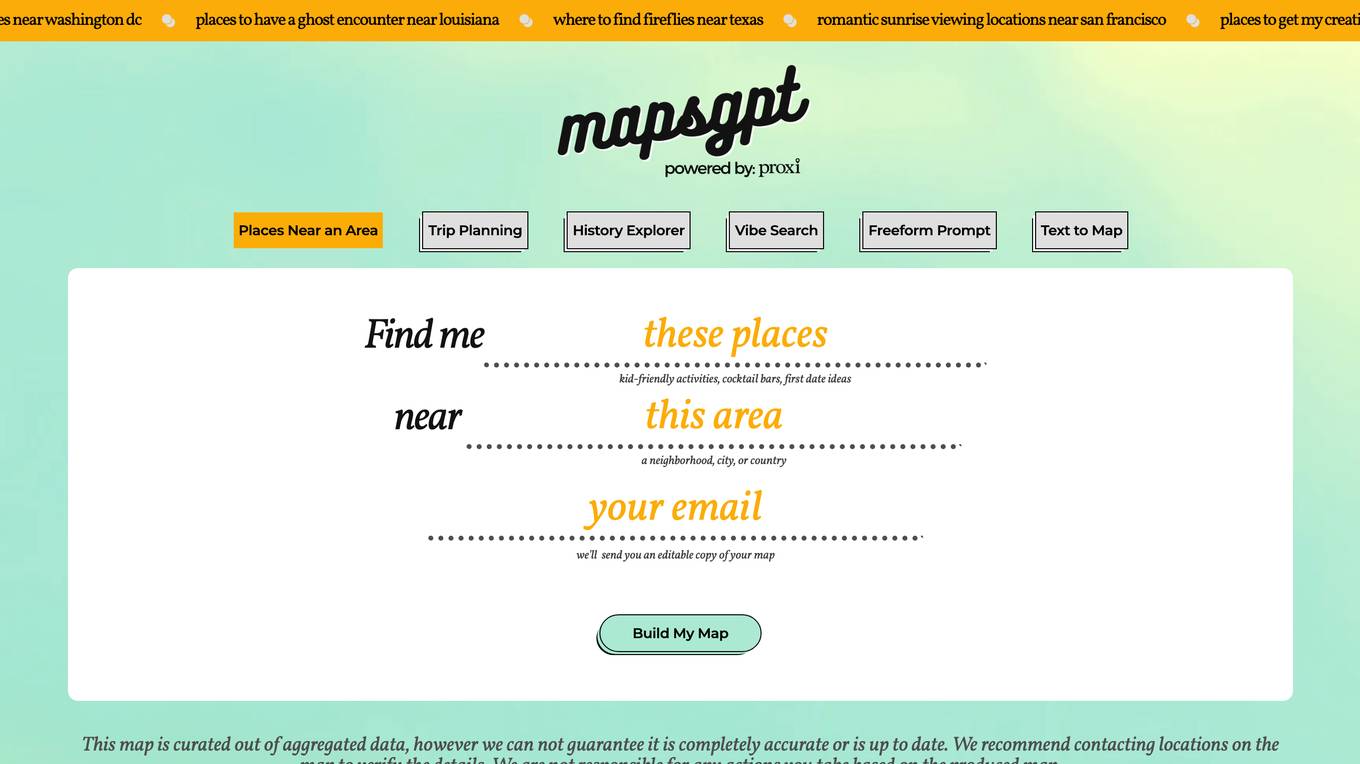
Proxi
Proxi is a web-based application that allows users to create custom maps with pins. Users can search for places near an area, plan day trips, explore history, find places with a specific vibe, and paste text to map the places. Proxi also offers a variety of map templates that users can customize to create their own maps.
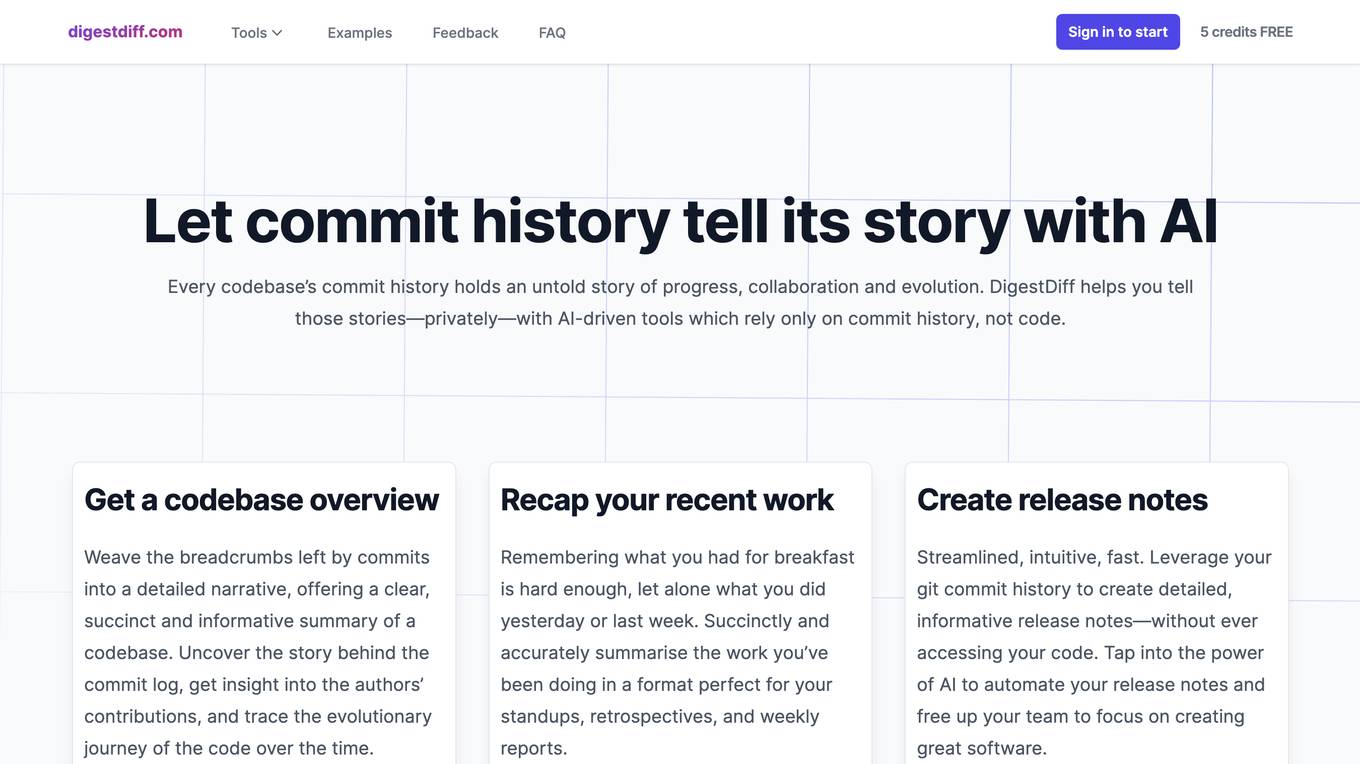
DigestDiff
DigestDiff is an AI-driven tool that helps users analyze and understand commit history in codebases. It provides detailed narratives based on commit history, accelerates onboarding by summarizing codebases, generates standup updates, creates release notes, and prioritizes privacy by only accessing commit history and not storing any code. The tool leverages AI to automate tasks and improve efficiency in software development workflows.
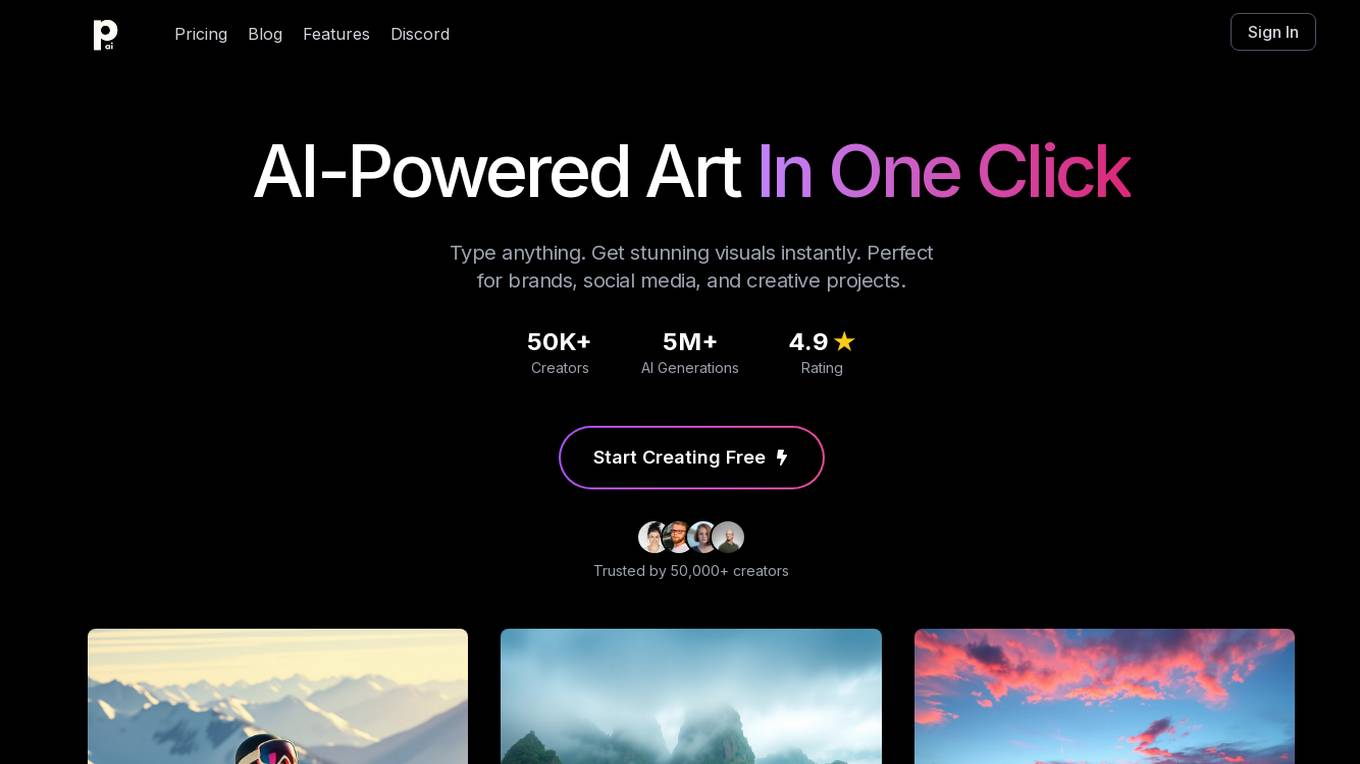
PhotoGenius.ai
PhotoGenius.ai is an AI-powered visual creation platform that allows users to generate stunning visuals instantly. It offers cutting-edge AI models for image generation, interactive 3D model transformation, and lightning-fast generation capabilities. With features like history saving, avatar AI personal portraits, app icons design, ad generator for marketing, and emoji creator, PhotoGenius.ai is perfect for brands, social media, and creative projects.
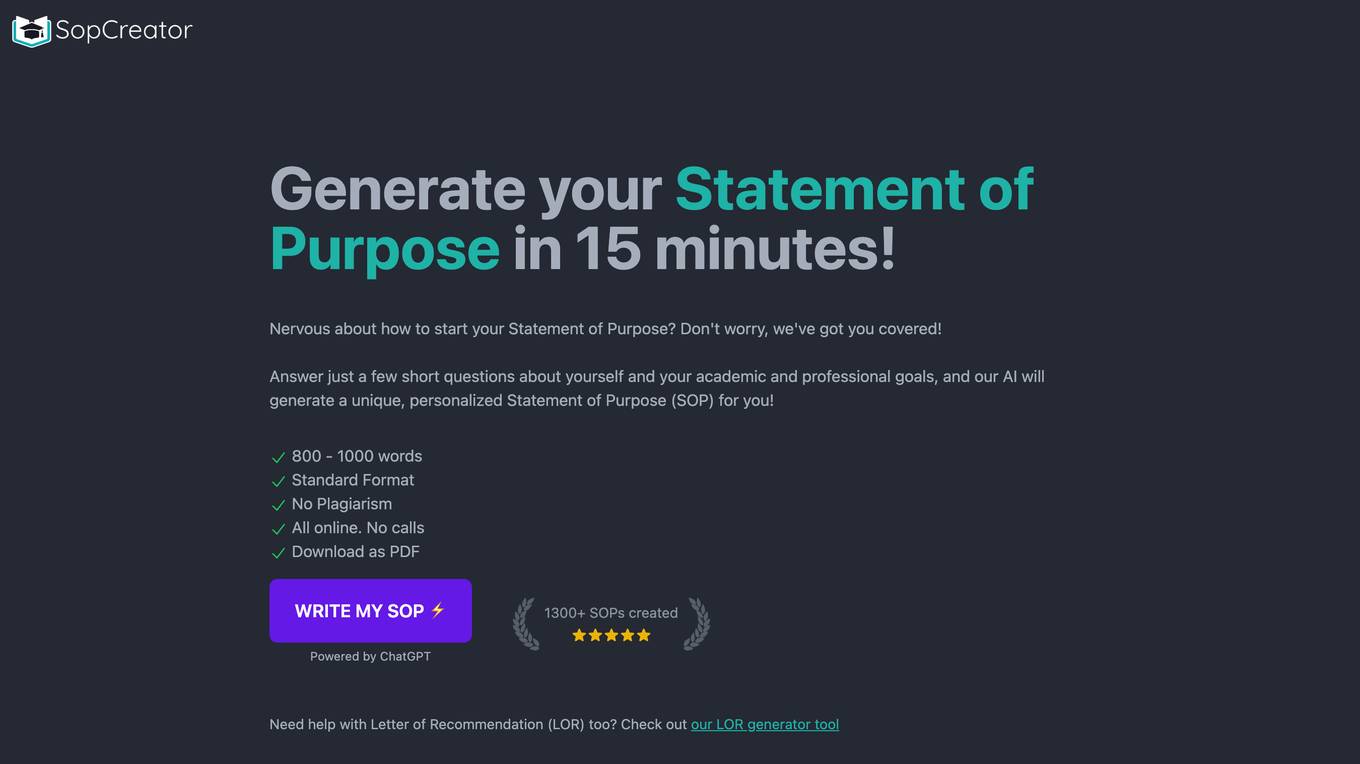
SopCreator
The website offers an AI-powered tool to help users generate personalized Statement of Purpose (SOP) for university applications. Users answer a series of questions about their academic and professional journey, and the AI generates a unique SOP tailored to their responses. The tool simplifies the SOP writing process by providing structured paragraphs covering introduction, academic history, work experience, extracurricular activities, university fit, and conclusion. It ensures that the SOP remains focused, impactful, and aligned with the user's qualifications and aspirations.
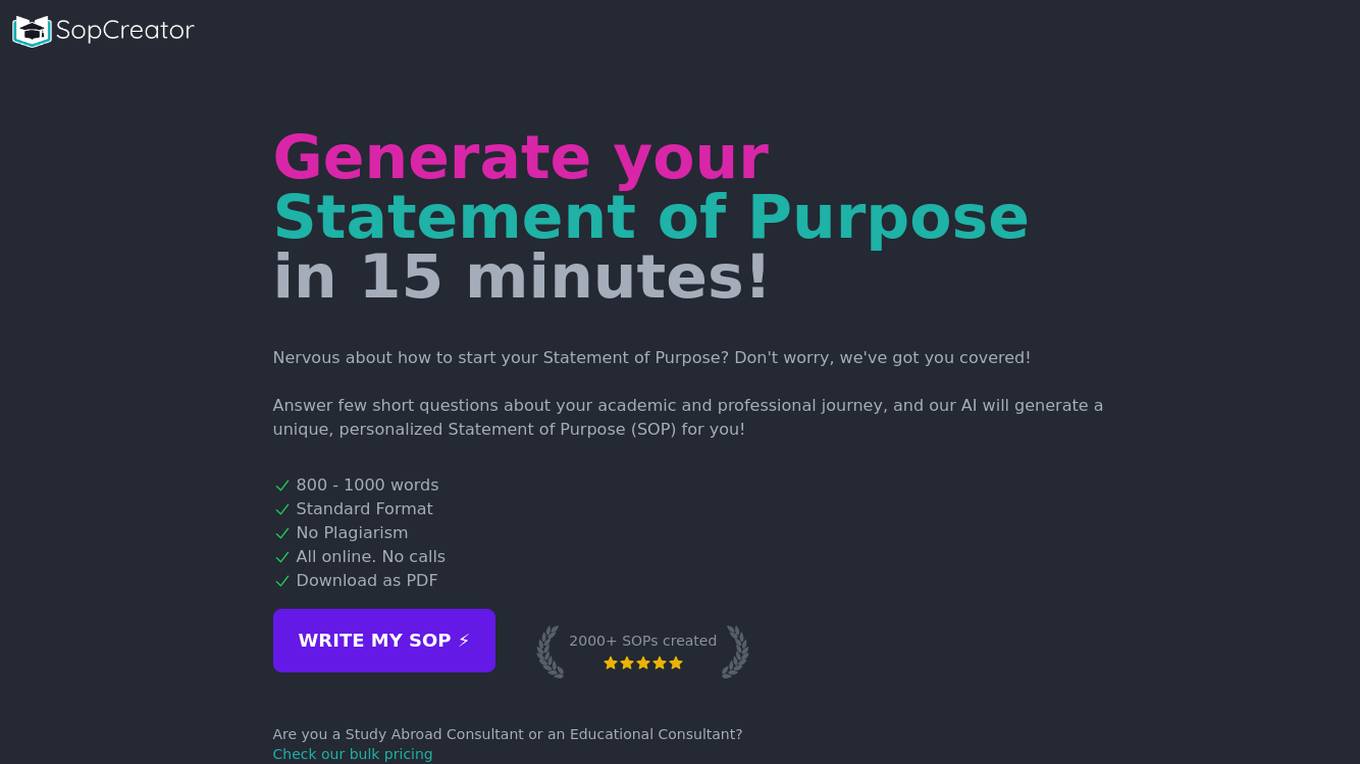
SopCreator.com
SopCreator.com is an AI-powered tool designed to help users generate personalized Statements of Purpose (SOP) for university applications. By answering a few questions about their academic and professional journey, users can create a unique SOP in just 15 minutes. The tool follows a standard format of 800-1000 words, ensuring no plagiarism and offering the option to download the SOP as a PDF. SopCreator.com simplifies the SOP writing process by providing tailored paragraphs covering introduction, academic history, work experience, extracurricular activities, university fit, and conclusion.

Linda
Linda is an AI-powered platform that helps users transform guided conversations into shareable audio memories. It offers a secure and private environment for users to create personalized podcast episodes based on their life stories. Linda uses advanced voice technology to conduct interviews, create podcasts, and provide a seamless user experience. With expertly crafted interviews and memory-driven conversations, Linda aims to help users explore and articulate their memories in a meaningful way. The platform also offers privacy controls, customization options, and themed interviews to capture special moments throughout the year.
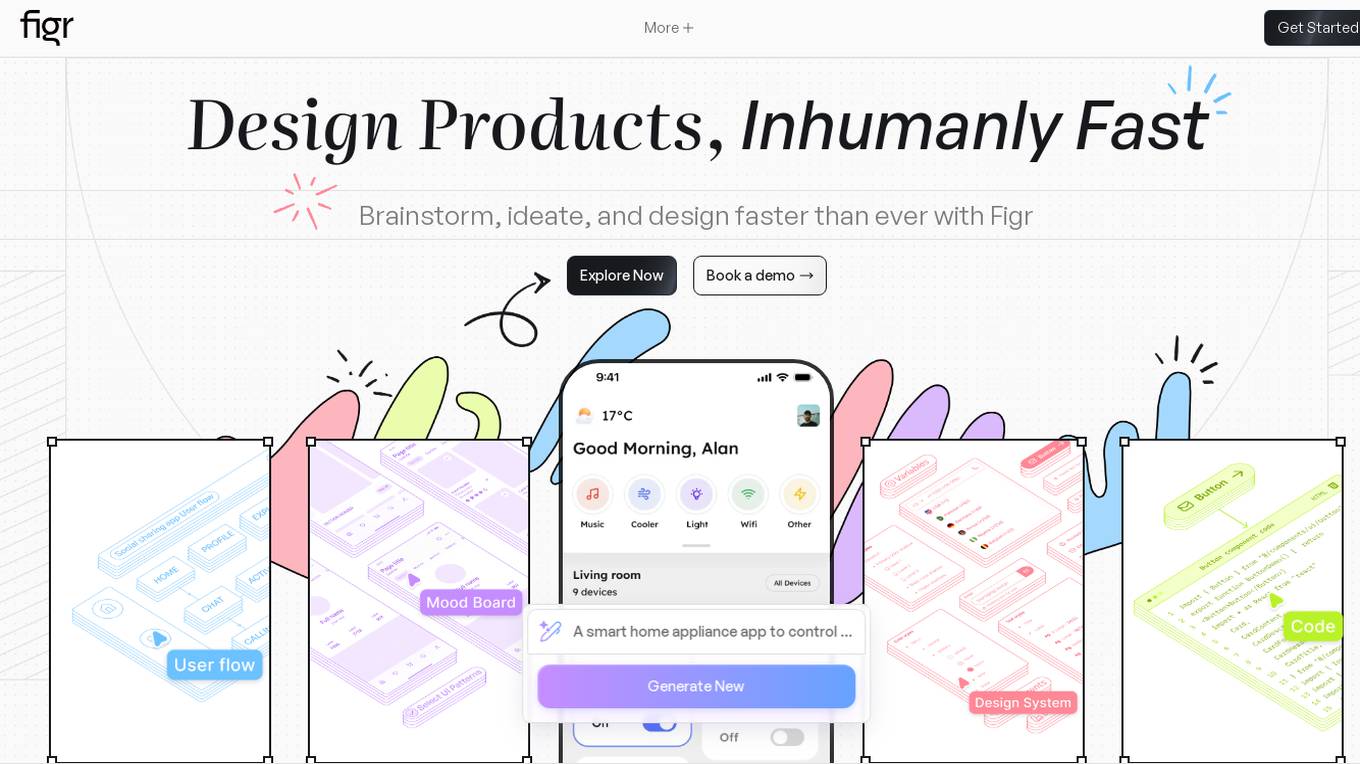
Figr
Figr is an AI-driven platform that specializes in UI design and workflow optimization. It leverages artificial intelligence to streamline the design process, making it more efficient and user-friendly. With Figr, users can create stunning user interfaces with ease, thanks to its intuitive tools and smart suggestions. The platform caters to both beginners and experienced designers, offering a range of features to enhance productivity and creativity. Figr aims to revolutionize the way UI design is approached by integrating AI technology seamlessly into the workflow.
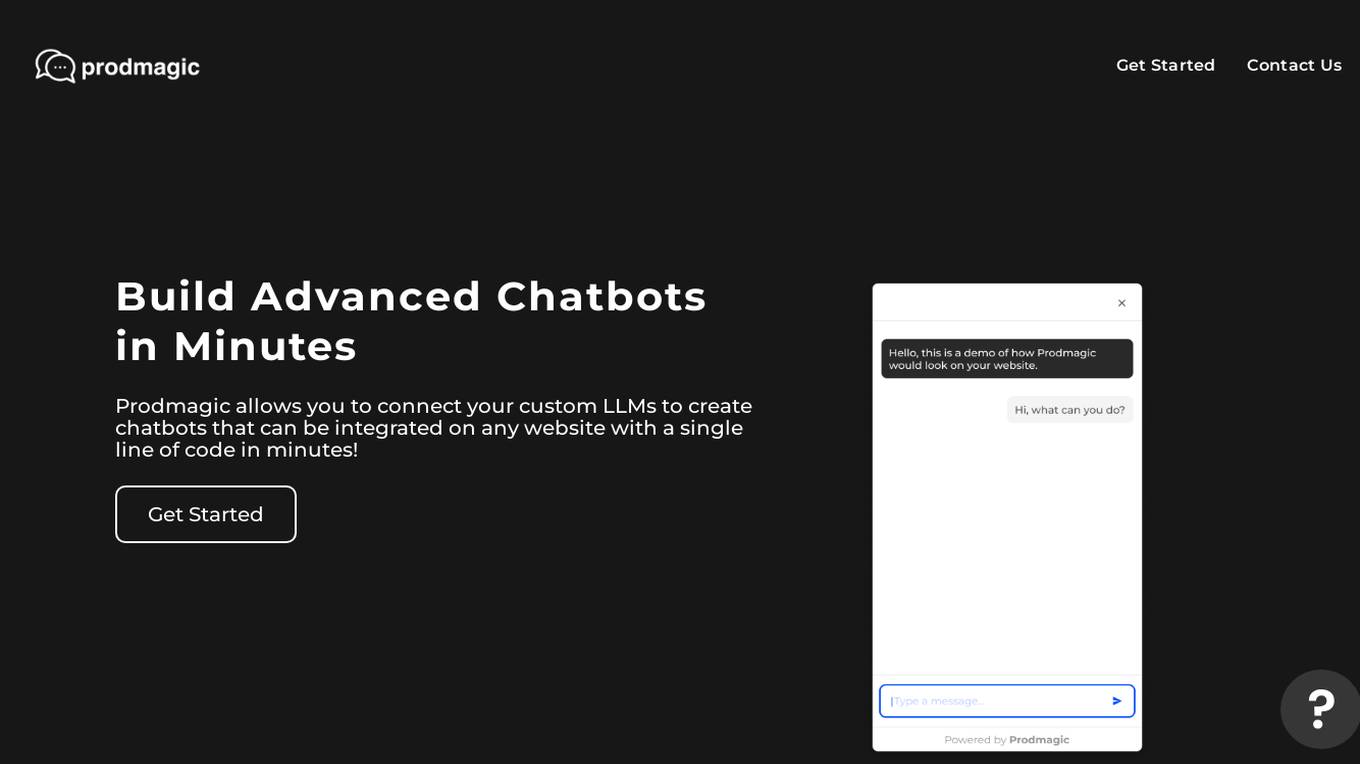
Prodmagic
Prodmagic is an AI tool that enables users to easily build advanced chatbots in minutes. With Prodmagic, users can connect their custom LLMs to create chatbots that can be integrated on any website with just a single line of code. The platform allows for easy customization of chatbots' appearance and behavior without the need for coding. Prodmagic also offers integration with custom LLMs and OpenAI, providing a seamless experience for users looking to enhance their chatbot capabilities. Additionally, Prodmagic provides essential features such as chat history, error monitoring, and simple pricing plans, making it a convenient and cost-effective solution for chatbot development.
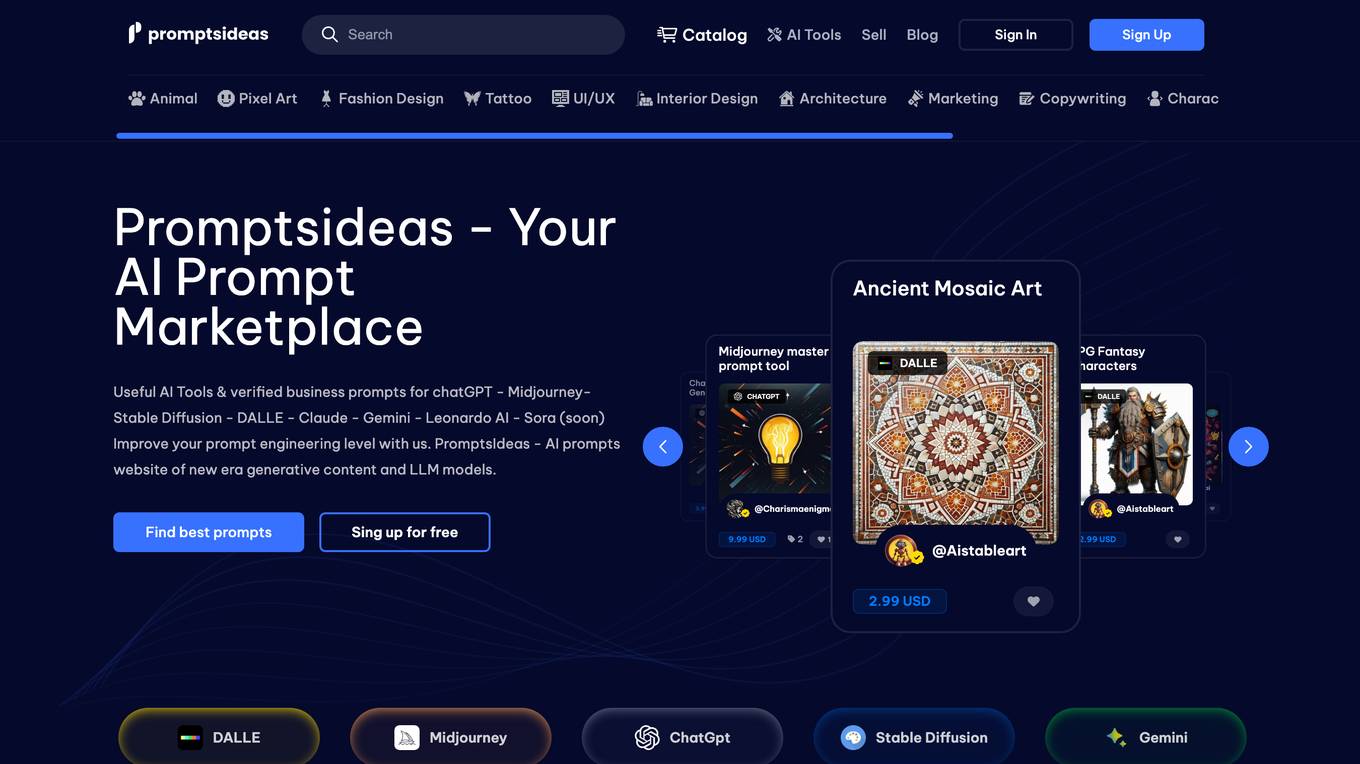
Promptsideas
Promptsideas is an AI prompt marketplace that offers a platform for users to engage with diverse AI prompts and monetize their own creations. It serves as a pioneering hub at the intersection of artificial intelligence and creative entrepreneurship, transforming the landscape of creative collaboration. The website features various AI tools and verified business prompts for chat, catering to individuals such as engineers, enthusiasts, businessmen, marketers, entrepreneurs, developers, designers, students, and teachers. Promptsideas aims to make prompt engineering comfortable and efficient, fostering a community where innovation thrives in the realm of AI-driven collaboration.
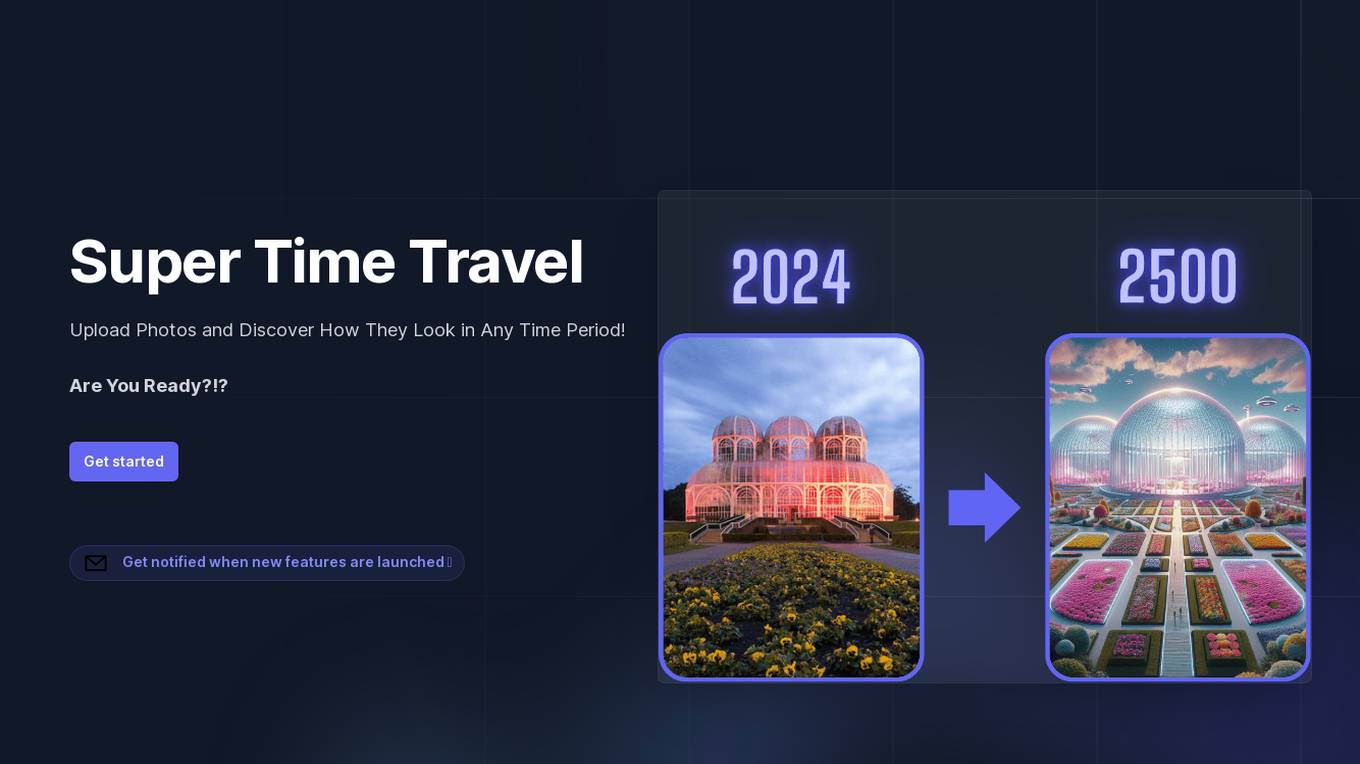
Super Time Travel
Super Time Travel is an AI tool developed by AE Studio that allows users to upload photos and discover how they would look in any time period. The tool provides a novel form of entertainment where people can creatively engage with their own photos, imagining how they might look in different historical periods or futuristic scenarios. AE Studio is a development, data science, and design studio that works closely with founders and executives to create custom software, machine learning, and BCI solutions.
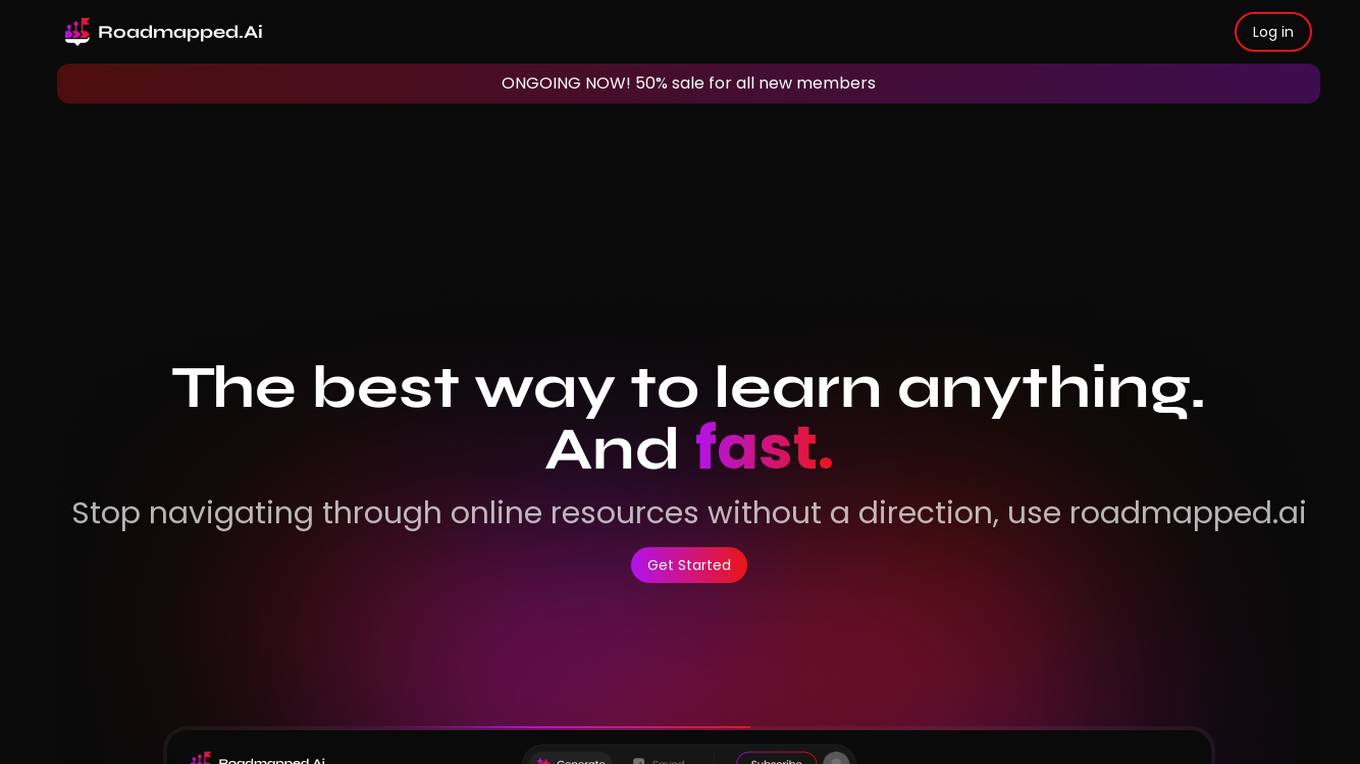
Roadmapped.ai
Roadmapped.ai is an AI-powered platform designed to help users learn various topics efficiently and quickly. By providing a structured roadmap generated in seconds, the platform eliminates the need to navigate through scattered online resources aimlessly. Users can input a topic they want to learn, and the AI will generate a personalized roadmap with curated resources. The platform also offers features like AI-powered YouTube search, saving roadmaps, priority support, and access to a private Discord community.

TeachEdge.ai
TeachEdge.ai is an innovative AI-powered platform designed to revolutionize the field of education. It leverages cutting-edge artificial intelligence technology to provide personalized learning experiences for students, streamline administrative tasks for educators, and enhance overall teaching effectiveness. With advanced algorithms and machine learning capabilities, TeachEdge.ai offers a comprehensive suite of tools and resources to optimize the learning process and improve educational outcomes.
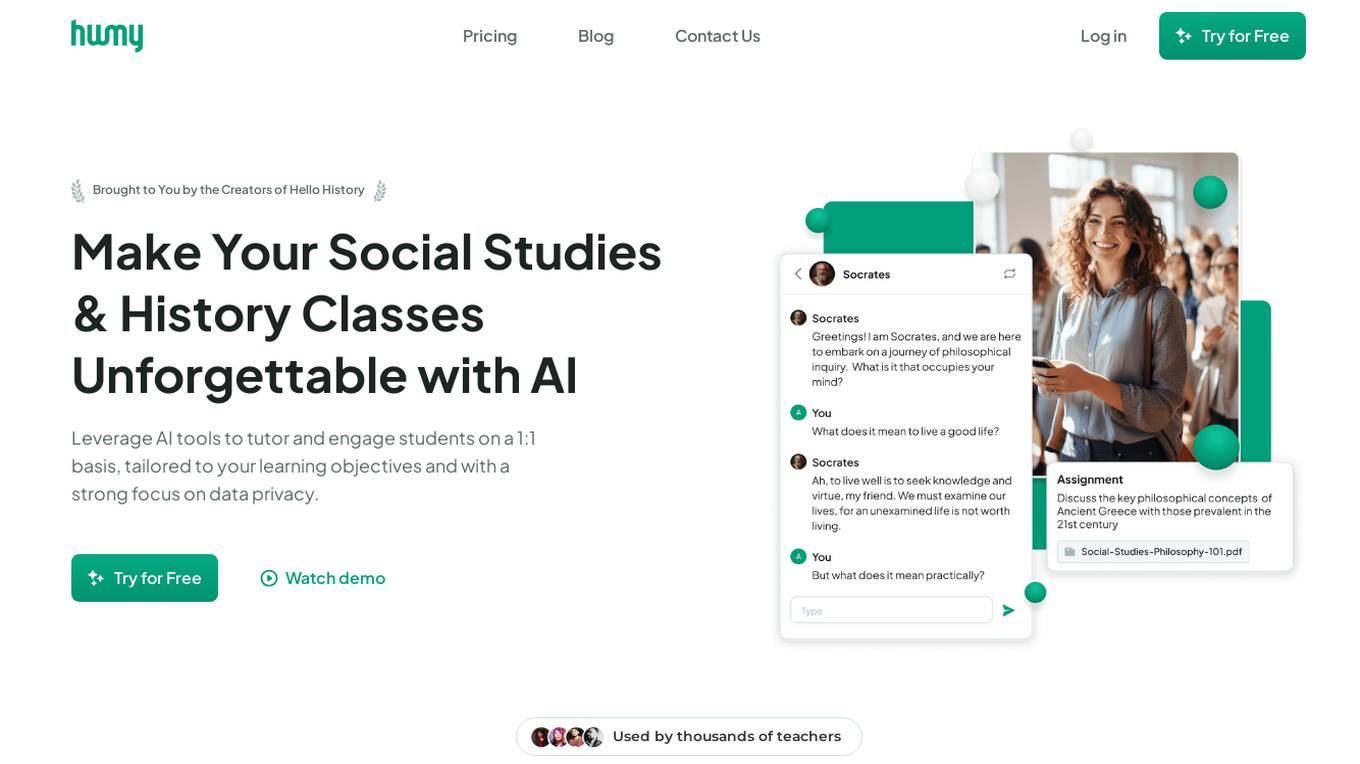
Humy.ai
Humy.ai is an AI-powered educational tool that provides personalized tutoring, assignments, and study materials for history and social studies classes. It leverages AI to create engaging and interactive learning experiences for students, allowing them to have life-like conversations with historical figures, receive tailored feedback on assignments, and access a vast library of educational resources.
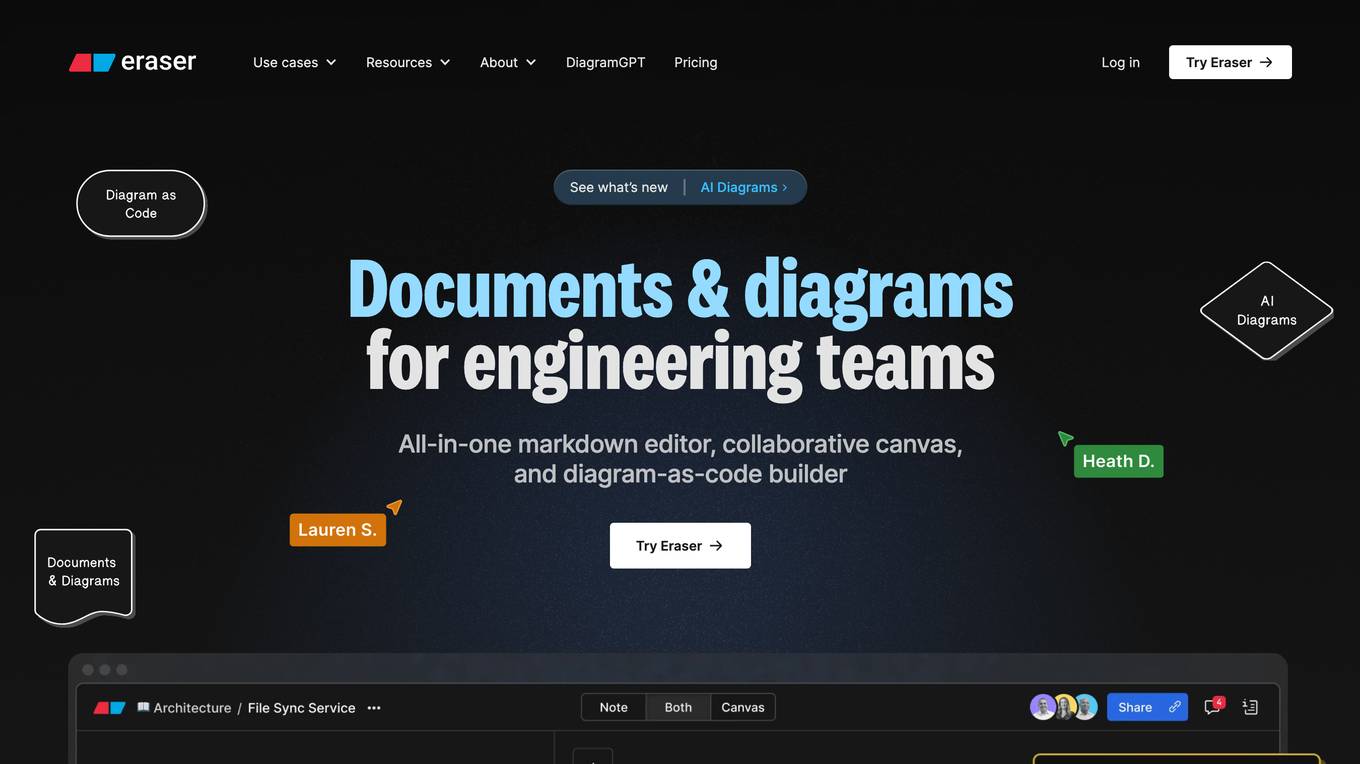
Eraser
Eraser is an AI co-pilot for technical design that offers a range of features to create diagrams, design documents, and technical documentation at the speed of thought. It provides integrations with popular tools like Confluence, Notion, VS Code, and GitHub, and is trusted by leading technical teams globally. Eraser ensures accurate, consistent designs faster, with beautiful and easily maintainable diagrams. It offers a minimal tool design, version history, various export options, and seamless integration with workflows. Eraser is SOC 2 type 2 certified, offers SAML SSO, and flexible deployment options for enterprise use.
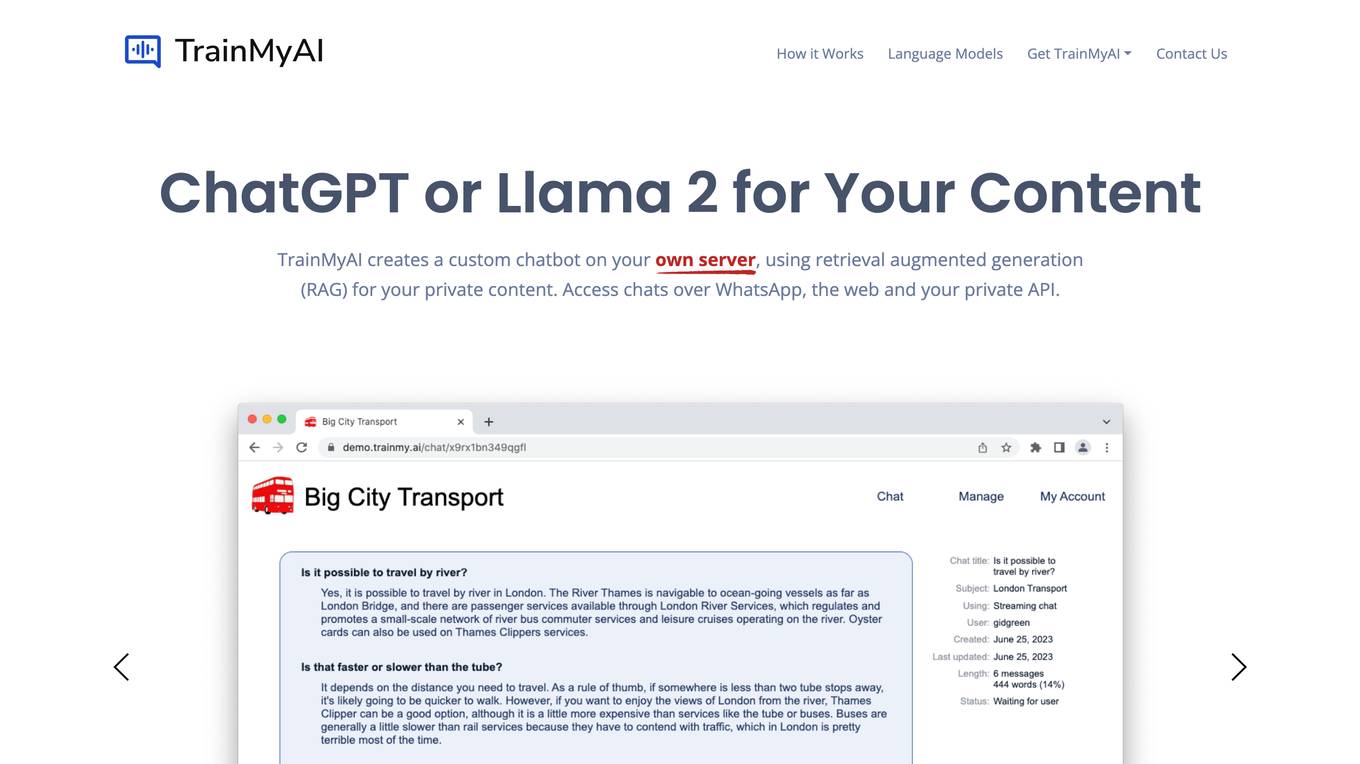
TrainMyAI
TrainMyAI is a comprehensive solution for creating AI chatbots using retrieval augmented generation (RAG) technology. It allows users to build custom AI chatbots on their servers, enabling interactions over WhatsApp, web, and private APIs. The platform offers deep customization options, fine-grained user management, usage history tracking, content optimization, and linked citations. With TrainMyAI, users can maintain full control over their AI models and data, either on-premise or in the cloud.
0 - Open Source AI Tools
20 - OpenAI Gpts
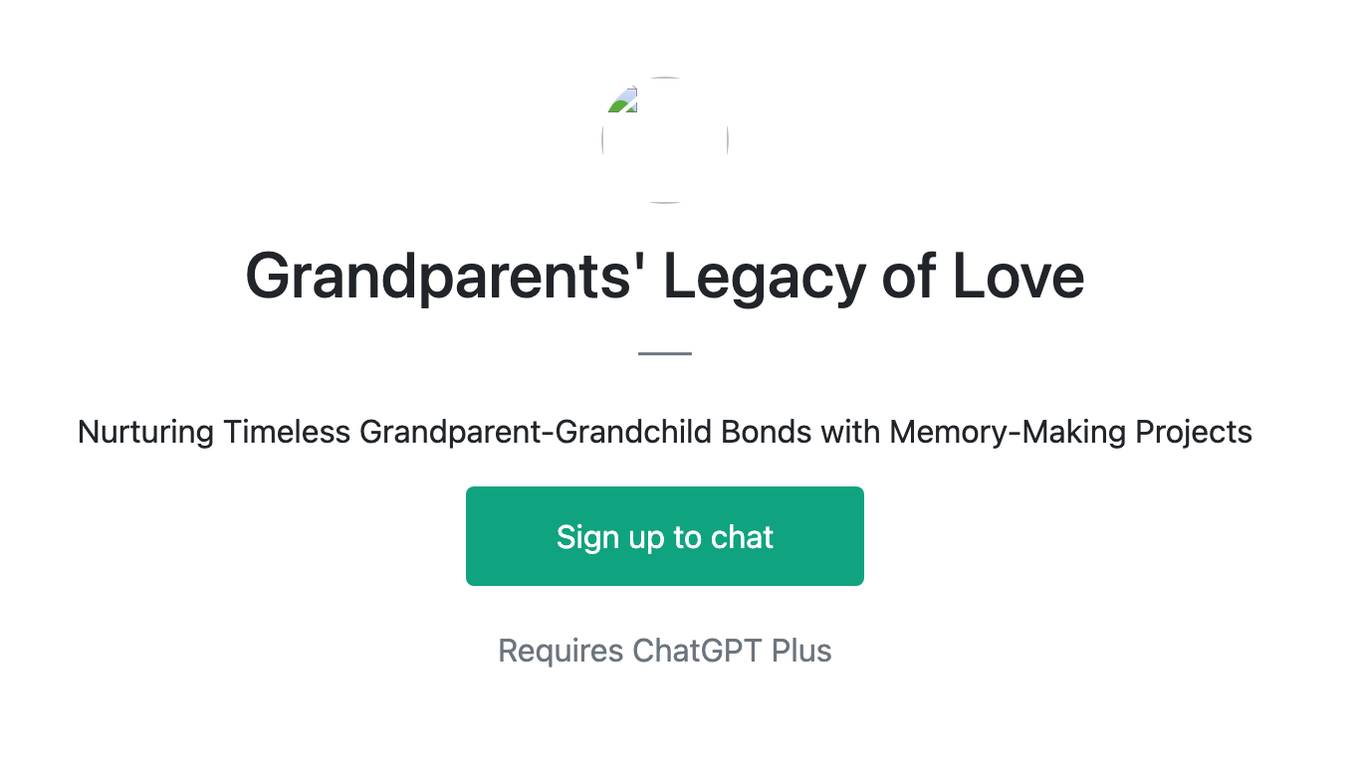
Grandparents' Legacy of Love
Nurturing Timeless Grandparent-Grandchild Bonds with Memory-Making Projects
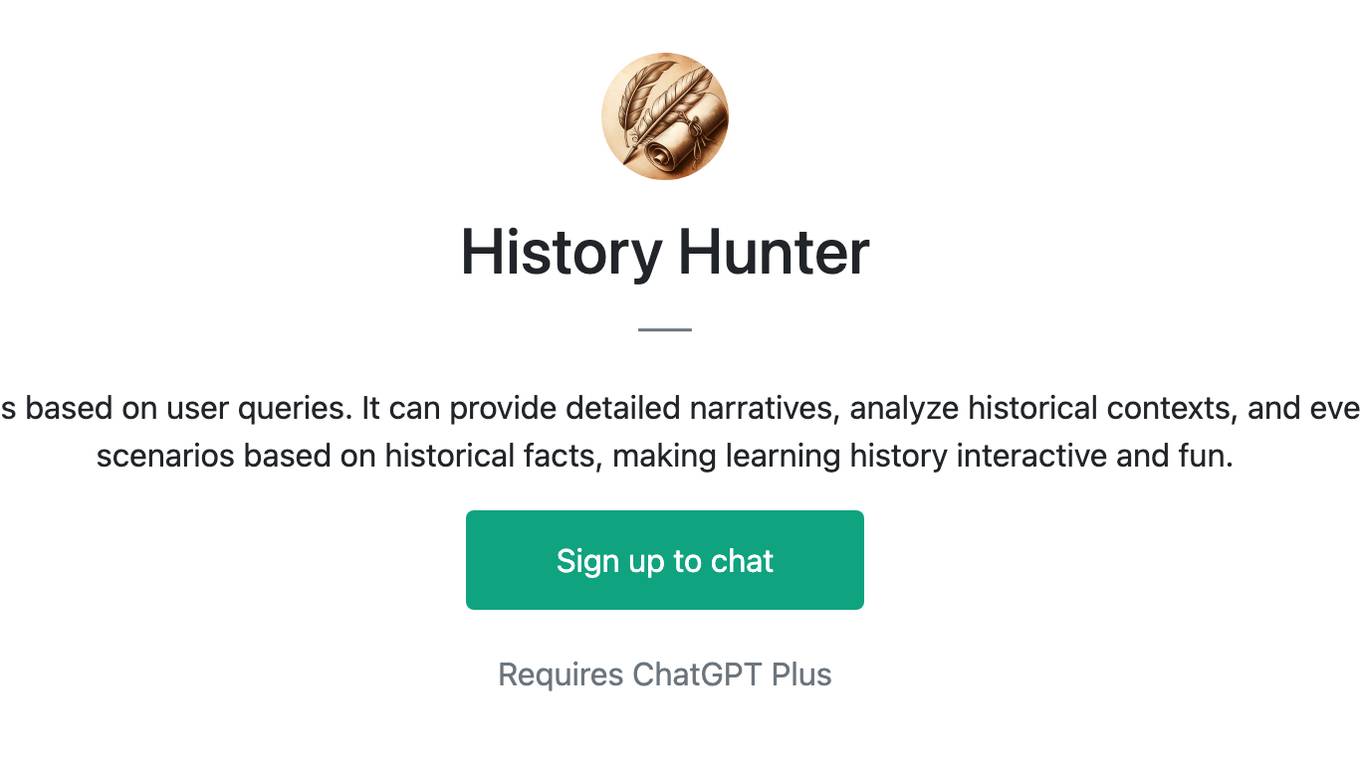
History Hunter
Delves into historical events, figures, or eras based on user queries. It can provide detailed narratives, analyze historical contexts, and even create engaging stories or hypothetical scenarios based on historical facts, making learning history interactive and fun.
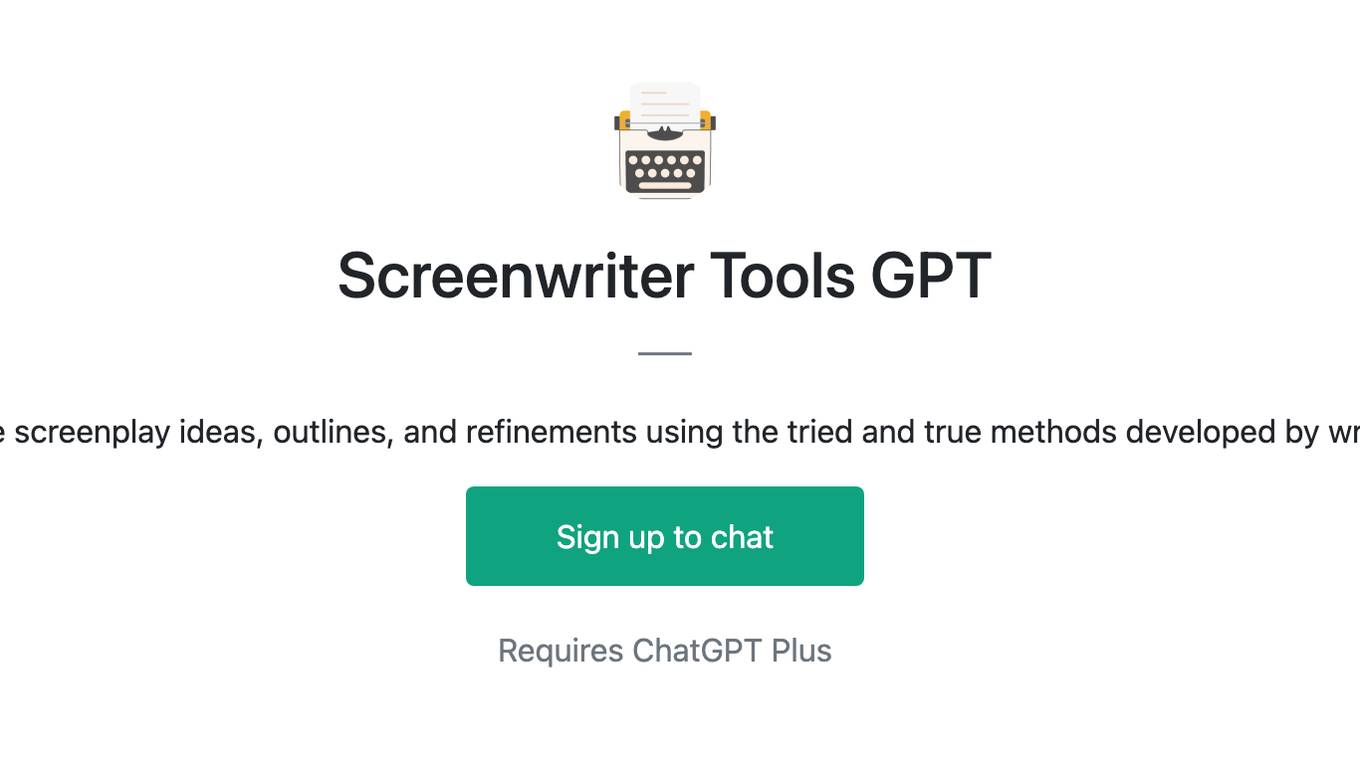
Screenwriter Tools GPT
I'm here to help you create screenplay ideas, outlines, and refinements using the tried and true methods developed by writers throughout history.
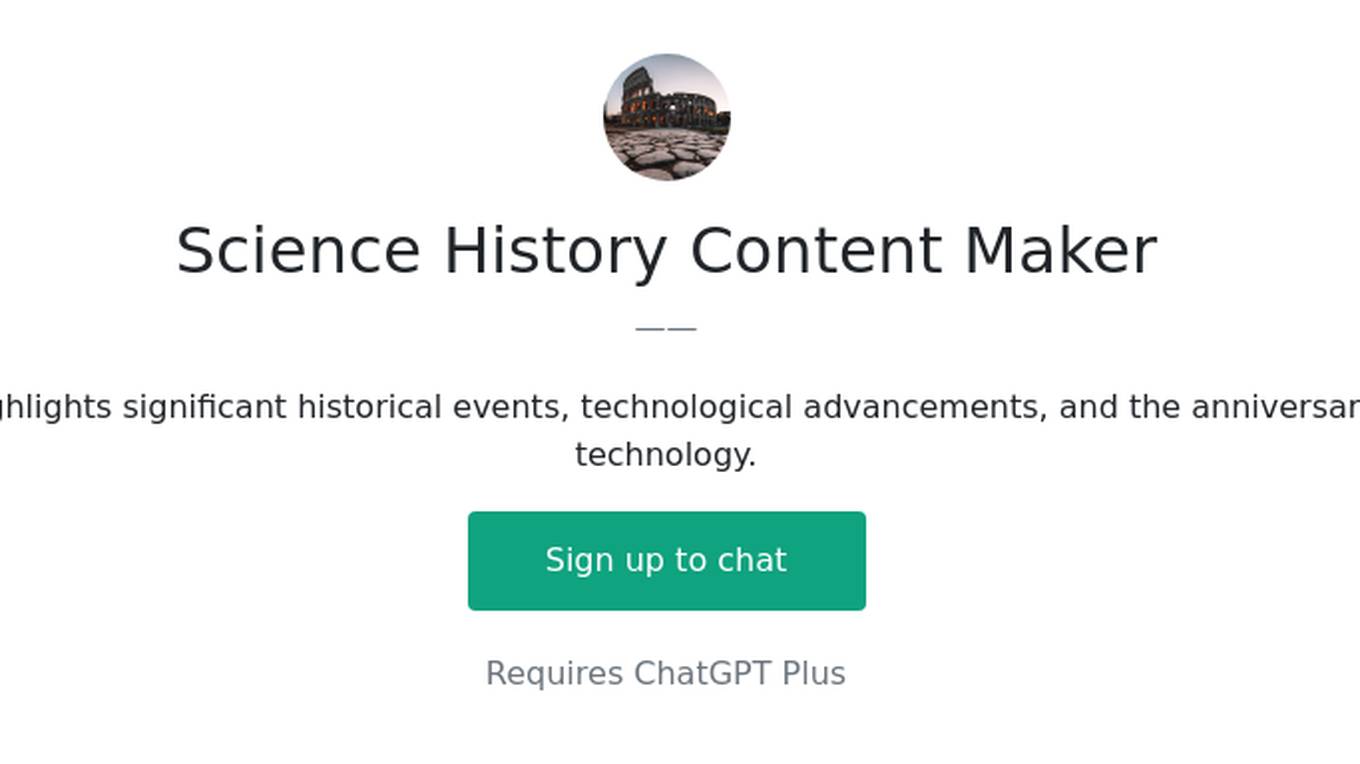
Science History Content Maker
My goal is to produce content that highlights significant historical events, technological advancements, and the anniversaries of notable figures in science and technology.
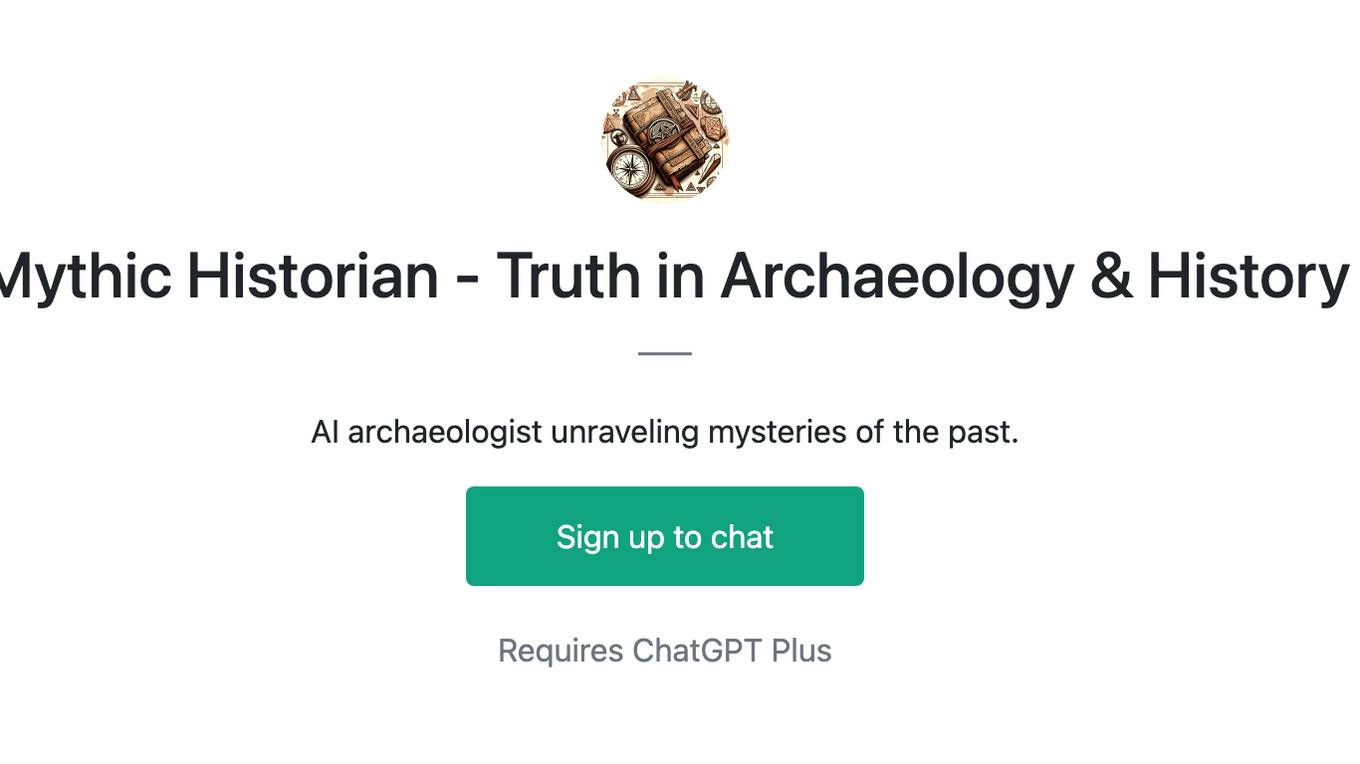
Mythic Historian - Truth in Archaeology & History
AI archaeologist unraveling mysteries of the past.
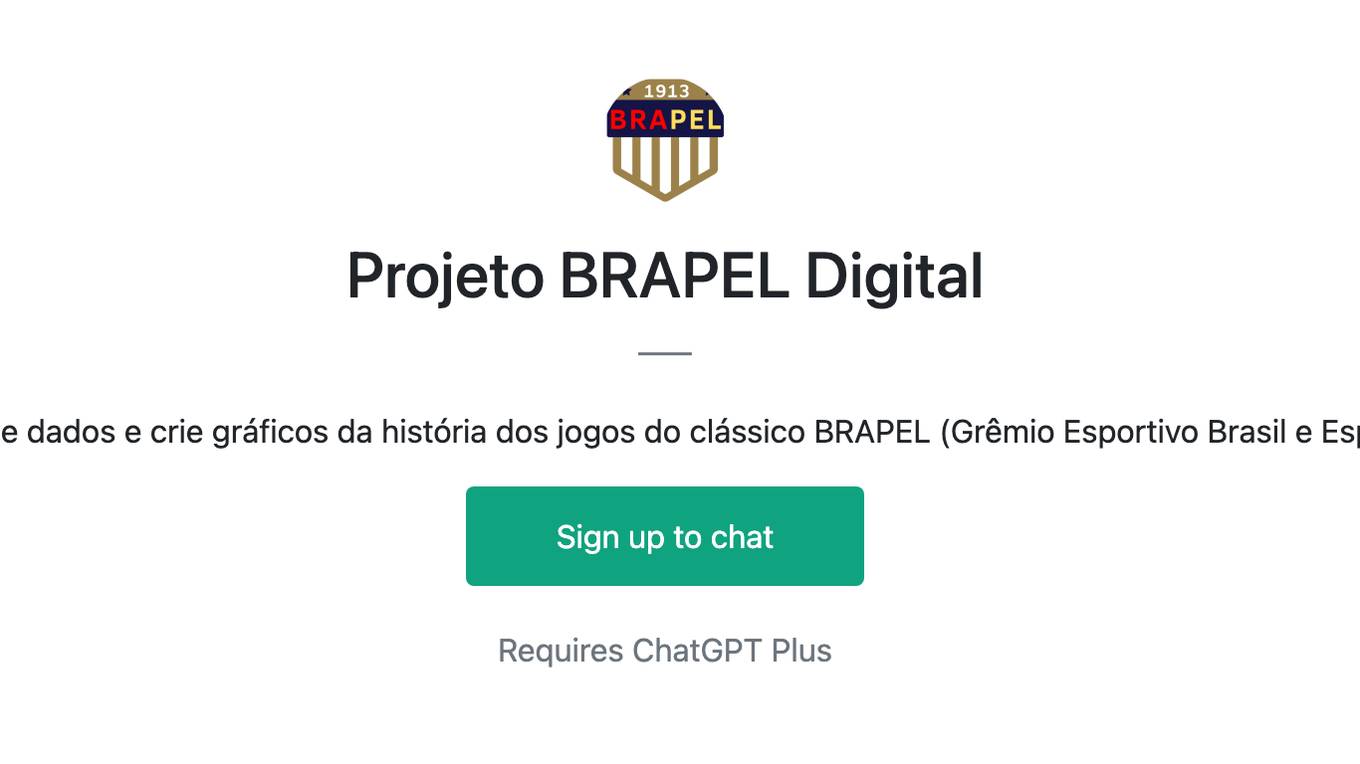
Projeto BRAPEL Digital
Faça perguntas, analise dados e crie gráficos da história dos jogos do clássico BRAPEL (Grêmio Esportivo Brasil e Esporte Clube Pelotas)
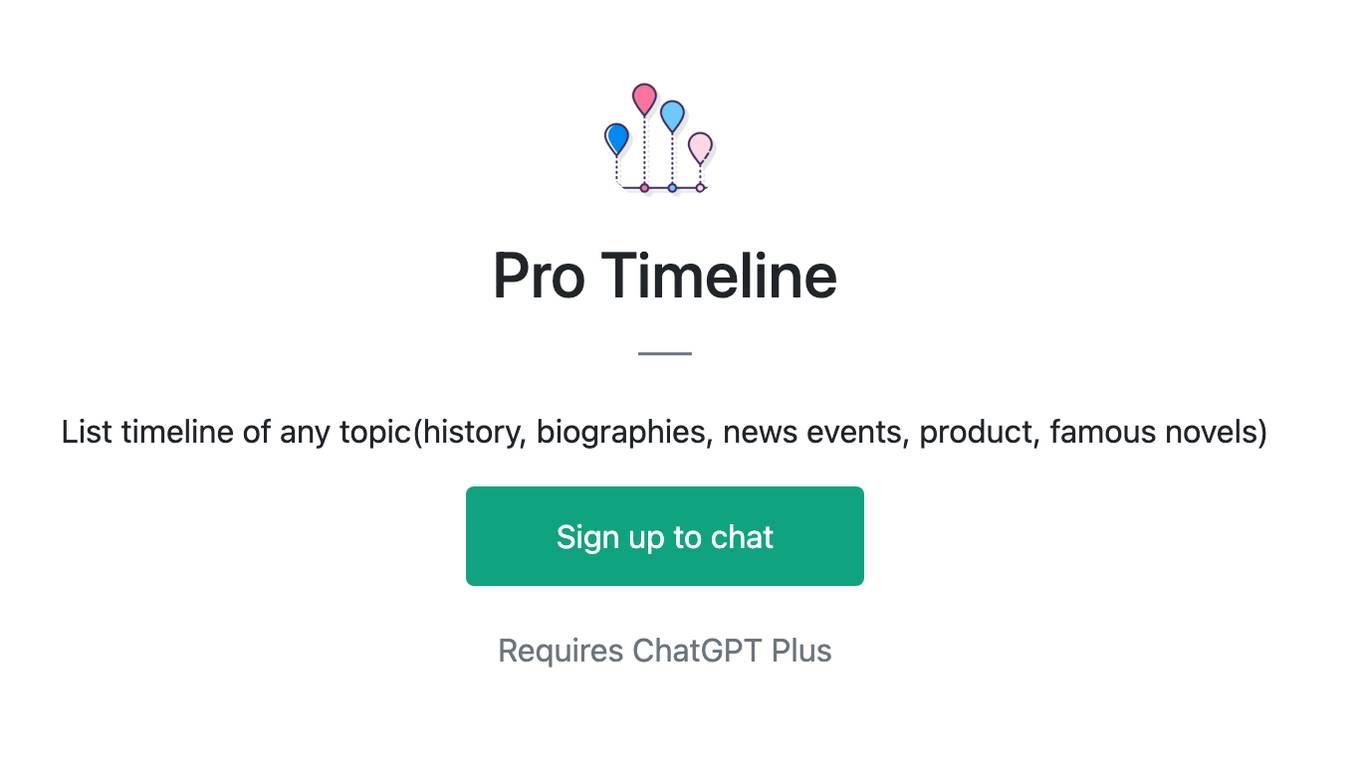
Pro Timeline
List timeline of any topic(history, biographies, news events, product, famous novels)
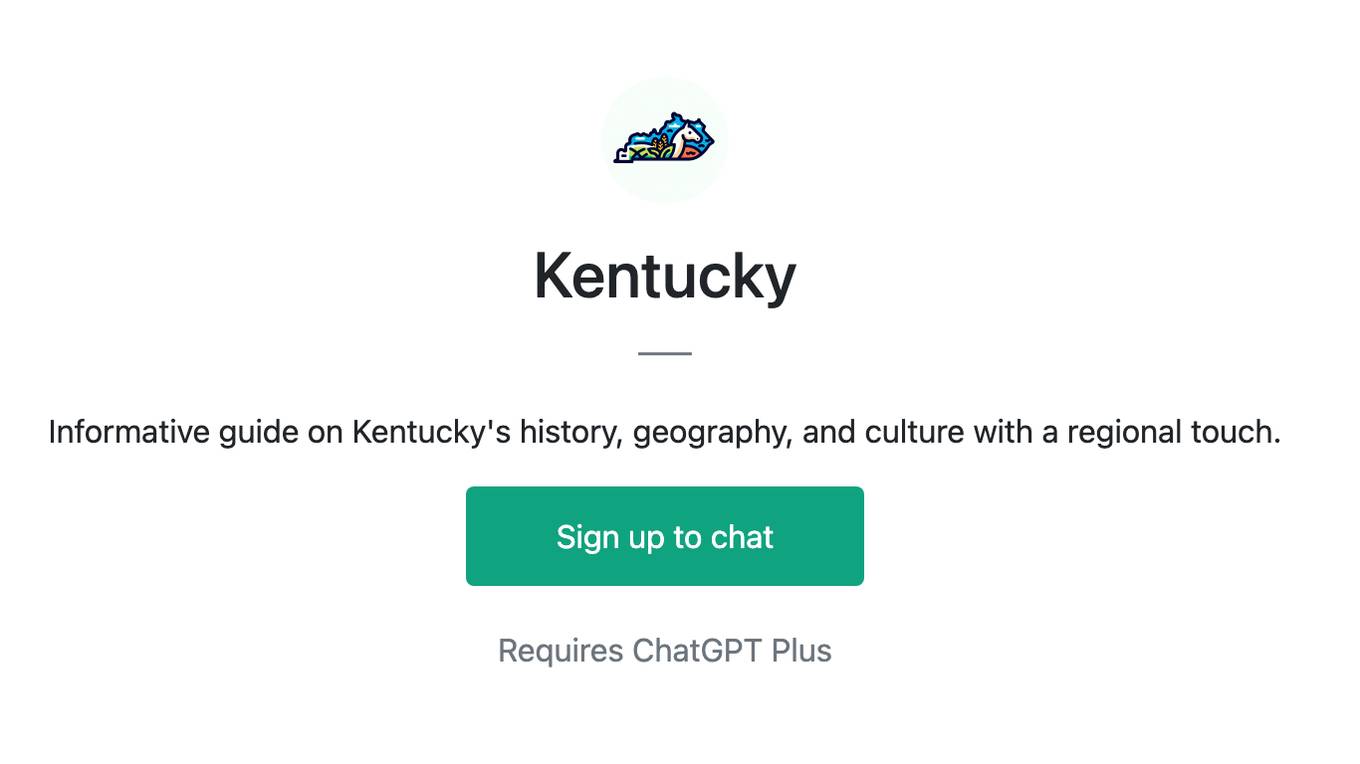
Kentucky
Informative guide on Kentucky's history, geography, and culture with a regional touch.
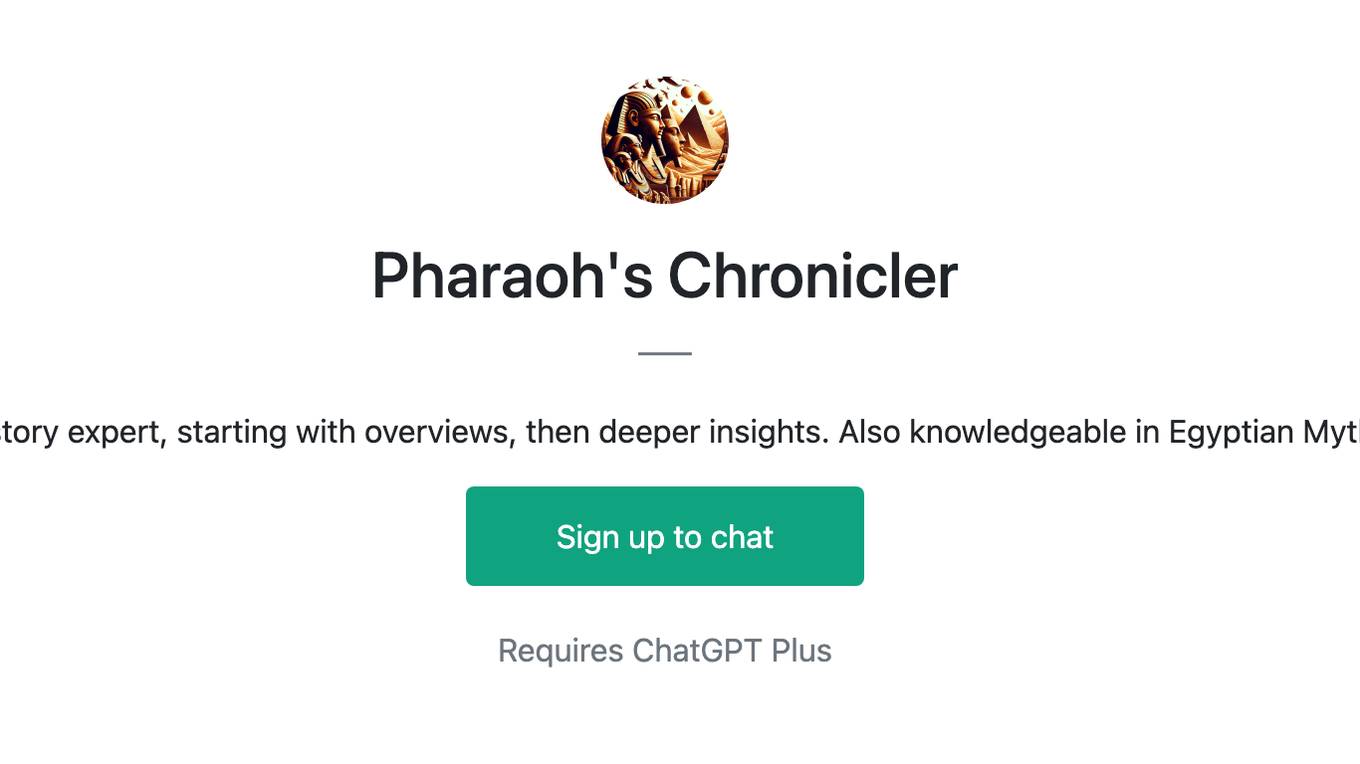
Pharaoh's Chronicler
Egypt history expert, starting with overviews, then deeper insights. Also knowledgeable in Egyptian Mythology.
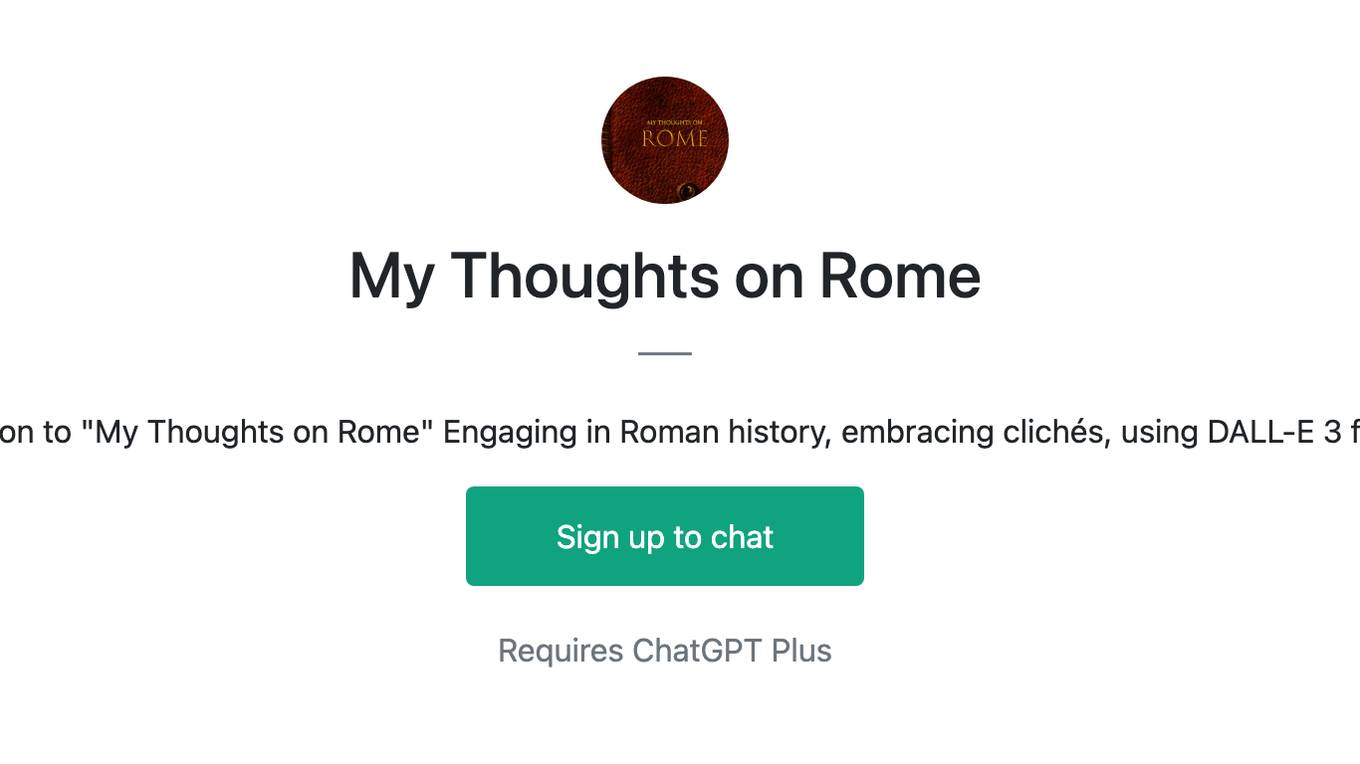
My Thoughts on Rome
AI Companion to "My Thoughts on Rome" Engaging in Roman history, embracing clichés, using DALL-E 3 for visuals
